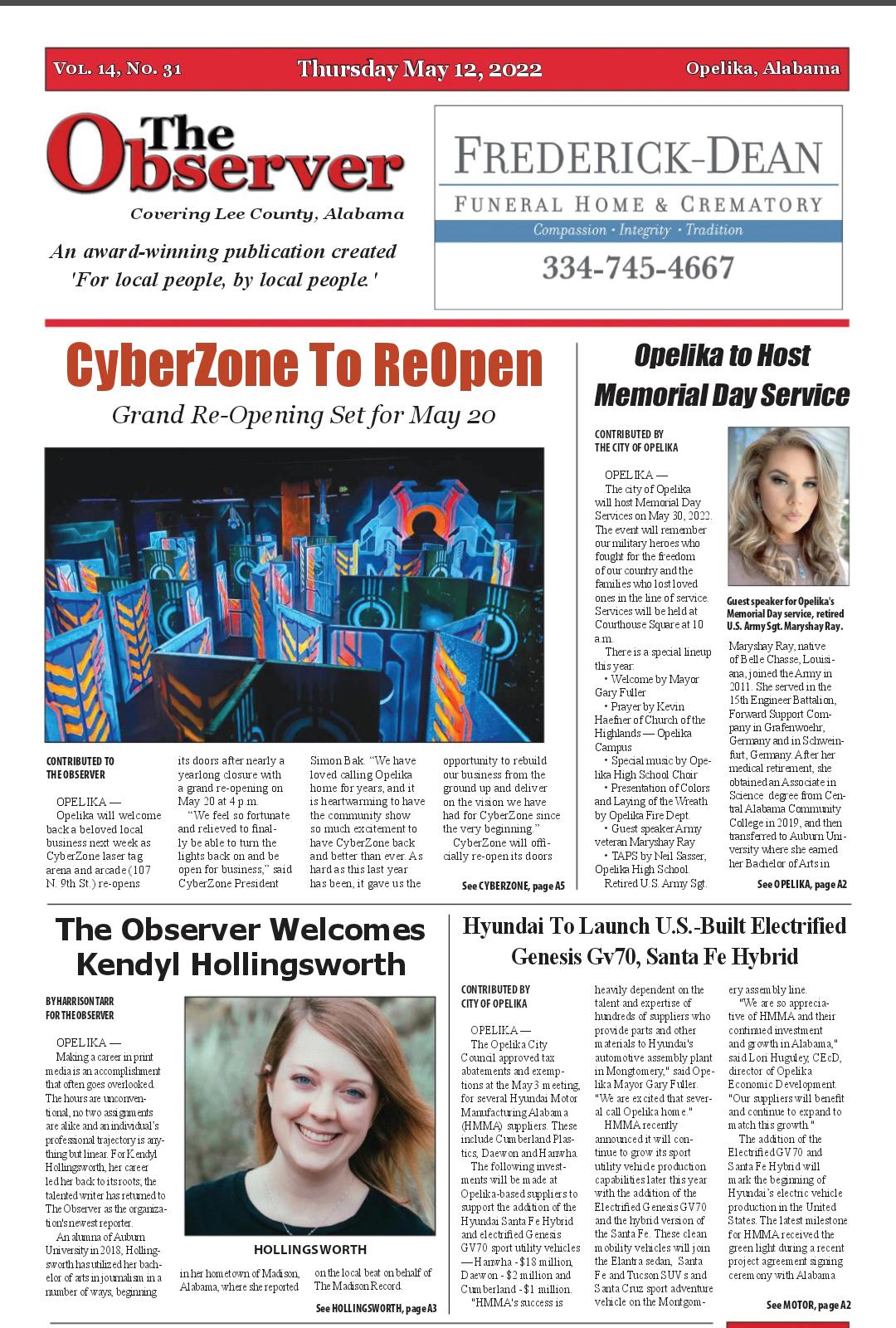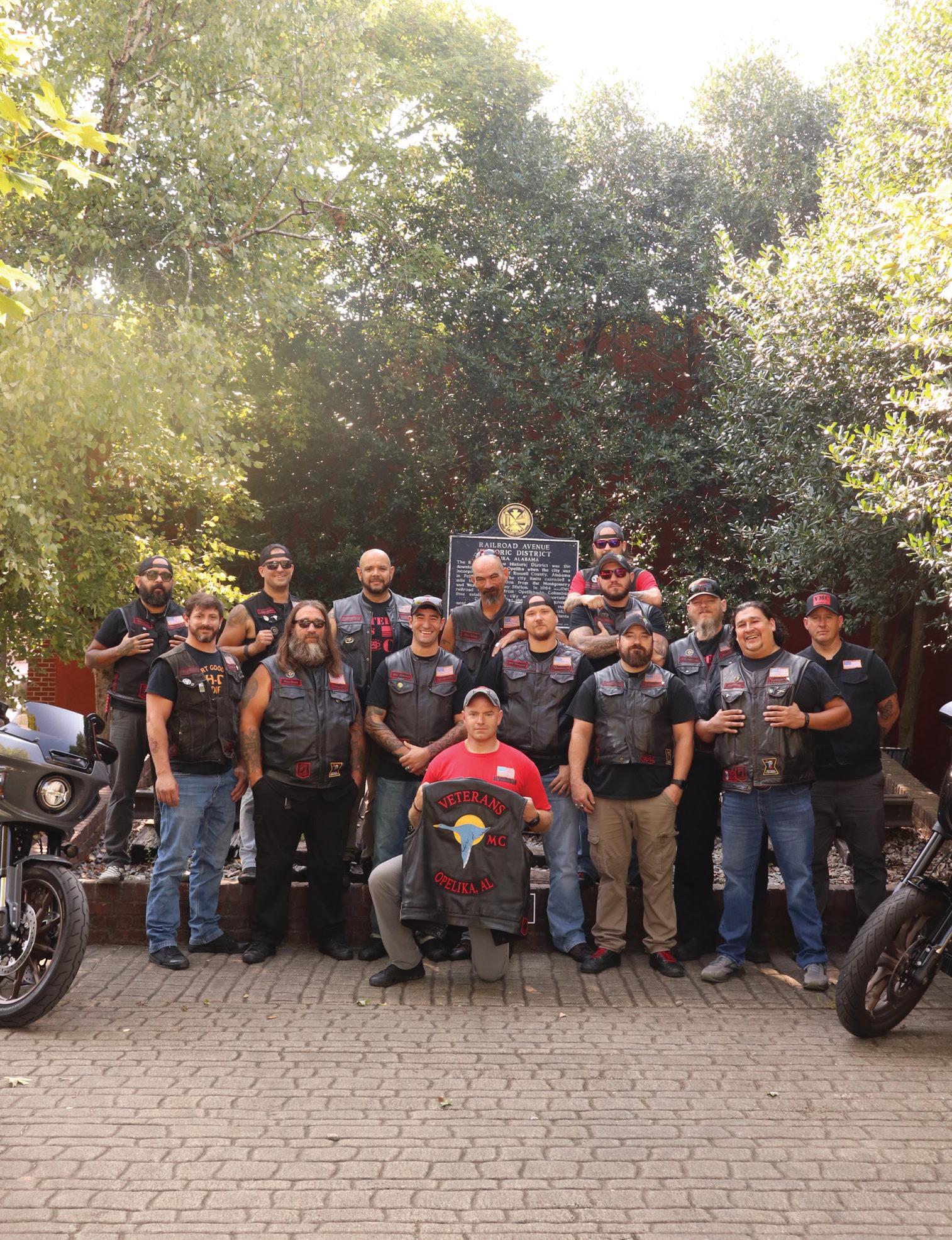
























Originally from Albertville, Alabama, Michelle Key and her family moved to the Opelika-Auburn area in 2011 after her husband’s retirement from the U.S. Navy. She is a graduate of Troy University, and she joined the Observer in 2014 as an office administrator before assuming ownership of the newspaper in January 2018.
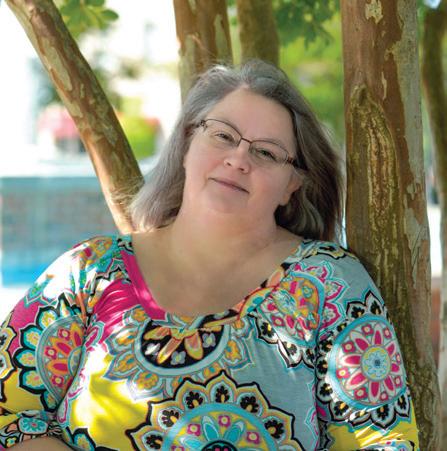
Hannah Lester is an Auburn University 2019 journalism graduate who is originally from Birmingham. She started with The Observer in July 2020 and began as the Associate Editor for the LIVE Lee Magazine. She assigns, writes and edits pieces for the magazine, as well as helps to design the pages. She was named editor of LIVE Lee in July 2021.
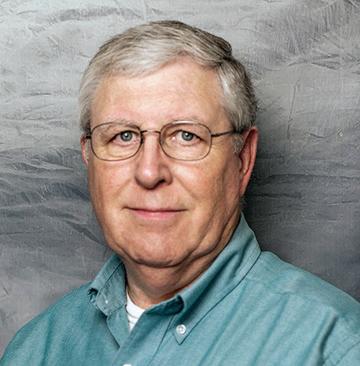
Wil Crews is an Auburn University 2020 journalism graduate originally from Prattville, Alabama. He works as The Observer’s sports editor and assists in developing the weekly paper and LIVE Lee Magazine.


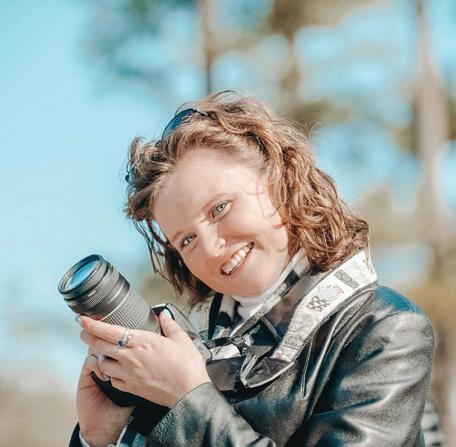
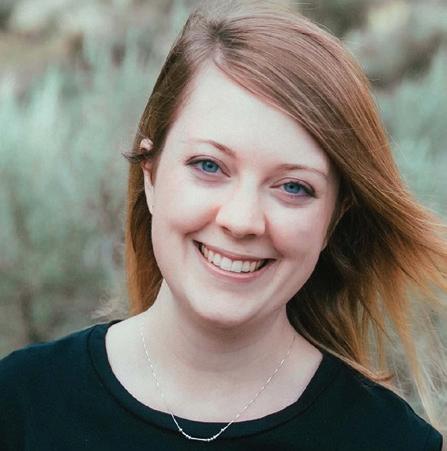
Kendyl Hollingsworth is a Huntsville native and 2018 journalism graduate of Auburn University. She interned at The Observer in early 2018 before returning to north Alabama to work at two newspapers and a magazine. Following a brief hiatus to serve as a missionary, Kendyl has returned to The Observer and LIVE Lee to help tell the unique stories of people across Lee County.
Robert Noles is an award-winning photojournalist who has been with The Observer for more than 10 years. Originally from Tallassee, he is a graduate of Alabama Christian College and Auburn University.
 Tucker Massey
Kara Mautz
Abigail Murphy
Natalie Salvatore
Michelle Key
Hannah Lester
MARKETING
Woody Ross
Rena Smith
John Hillsman
Hannah Lester
Megan Mann
Tucker Massey
Kara Mautz
Abigail Murphy
Natalie Salvatore
Michelle Key
Hannah Lester
MARKETING
Woody Ross
Rena Smith
John Hillsman
Hannah Lester
Megan Mann
Another year has passed without me risking my life for my country. Many of the members of my family who were veterans have now passed away. My brother, however, has been serving a year. Most of his time, thankfully, has been spent in Pensacola, where it’s easy to make a visit. There are many members of our communities who gave up years of their lives, mental and physical health and more to protect our rights and freedoms.
Do we do enough for our veterans? I would argue we could be doing a lot more. I have had more than one person over the last year tell me that people say they care about veterans, but really don’t. One way to support veterans is to employ them. We need to make sure that the benefits we promise veterans, they actually receive.
And I do think it’s important for us to thank our veterans. This year, on Veterans Day, both the cities of Auburn and Opelika will host ceremonies, like they did last year.

The Opelika event will be held on Nov. 11 at 10 a.m. at the Opelika Public Library. Veterans and their families will receive free breakfast at 9 a.m., and the program, open to the public, will begin at 10 a.m.
Auburn will hold its annual veterans event — co-hosted by the city of Auburn and the Auburn Veterans Committee. The ceremony is held at the Auburn Veterans Memorial Monument at the corner of Ross Street and Glenn Avenue. If it rains, find the program indoors at 141 N. Ross St.
We hope you’ll take advantage of this opportunity to meet your neighbors in both cities and thank a veteran for their service.
In this magazine, we wanted to highlight a few of the veterans who live in our community, some of their businesses and organizations that provide a place for veterans to gather together. We also shared some photos of events around the area and of last year’s Veterans Day events. We hope you’ll reach out if you ever have any questions about our publication. Enjoy!



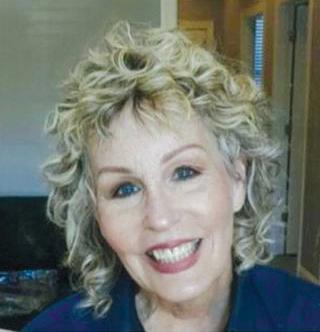




Lee County Assistant Veterans Service Officer
Christopher Williams was honored earlier this year with the Alabama Department of Veterans Affairs (ADVA) Distinguished Service Award.
Williams had no idea last April that the ADVA would present him with an award for his work in 2021 on projects assisting local veterans.
ADVA Commissioner Kent Davis traveled to Lee County to surprise Williams with the award on April 27, 2022.
“We get around the state and just visit our veterans service offices,” Davis said. “… We love to come by and just chat with the staff and see how it’s going and see how the relationships between the county and our staff is going. And it is great, and I always make a point to say thank you to the county because serving veterans through these guys is a joint effort with all the individual counties that we’re located in.
“… Every year we try to award one of our employees with something we call our ‘Distinguished Service Award,’ given to an ADVA employee to recognize significant job performance, teamwork, superior customer service and special contributions.”

There was a whole process that needed to be completed before
Williams could win the award. He was nominated by his boss, which was then reviewed by an awards committee.
“Having an assistant [like] Mr. Williams, who is energetic, reliable and knowledgeable, has made the many changes necessary to adapt and accomplish the ADVA’s mission seamless[ly],” said Lee County Veterans Service Officer Sean Gathers. “Christopher Williams exhibits leadership qualities easily capable of executing the duties and responsibilities of a veterans service officer.”
Out of the 1,200 employees, Williams was chosen this year.
“Everybody knows the last couple years have been difficult,” Davis said. “In the world of veterans’ affairs, it’s been really difficult dealing with the pandemic, and all of our offices, including this office, stayed open and provided just superb customer service to our veterans around the state.
“Despite the challenges of the pandemic, [Williams] did his job with energy; he was reliable, knowledgeable. He’s shown himself to be completely trustworthy and reliable in performing his duties. He’s dedicated to our core missions and the core values of the Alabama Department of Veterans Affairs.”
Williams focused his work in 2021 on two new projects —
“Project Digital” and “Project Digital 2.0”. These projects turned all hardcopies of documents into digital files.
“He also assisted the nearly 12,000 veterans in Lee County while also traveling weekly to the Tallapoosa Coosa County area and Chambers County to assist veterans,” said the ADVA.

Williams also took time to do research and studied case laws related to veterans’ affairs, Davis said.
“He’s been very active in the community,” Davis said. “He coordinated and executed several roundtable discussions with an audience with state Medicaid, Medicare, local nursing homes from all over the state of Alabama, sharing information and lessons learned to better assist veterans and their surviving spouses as they dealt with those agencies.”
Williams also participated in and attended events around the

area and state to better serve veterans.
“So in short, Mr. Williams has dedicated countless hours over the last year volunteering in the community with two nonprofit organizations for the purpose of providing scholarships to college-bound students from the local area of Lee, Russell and Macon Counties,” Davis said. “All of that, in addition to his regular job that he performs 40 hours a week.”
There are approximately 400,000 veterans in Alabama, he said.

“We try to go the extra mile to make sure they’re taken care of, especially when they come home from their service in the military,” Davis said. “ … All of our veterans service officers and assistant veterans service officers do a great job taking care of the needs of veterans around the state. Everything from helping them apply for a claim with the Federal VA, to helping family members applying for GI Bill benefits, VA loans — anything that involves services and benefits to veterans.”
Williams brought the attention back to his own leadership and bosses, however, when presented with the award.
“I want to thank my chain of command first because I am right here today because of my chain of command,” he said. “And everybody that I’m looking at in here, you have some form, some part in this.”

Named after a dedicated Army veteran, the Robert S. Poydasheff Veterans Affairs (VA) Clinic first opened on July 11 in Columbus, Georgia. Since its grand opening on July 22 with a ribbon-cutting ceremony to commemorate the moment, this 55,000-square-foot facility has seen great success, as it currently serves approximately 25,000 veterans in the Chattahoochee Valley.
“One of the unique things about it is we are treating roughly 4,000 female veterans at this clinic,” said Prudence Howard, associate director for the Central Alabama Veterans Health Care System (CAVHCS).
The health care system’s almost two years of preparation helped make this clinic a reality.

“I am ecstatic,” Howard said. “The veterans are enjoying having that clinic there, and as long as they are happy, I am happy.”
Although Howard is not located at the clinic, she works in Montgomery at one of the system’s main campuses as part of its executive leadership team. Services she works with include health administrative, chaplain, nutrition and food services, as well as a center for civil engagement and development and an office for community care.

CAVHCS has four sites for care in the Columbus metropolitan area that work alongside this clinic, including an optometry clinic in the Martin Army Community Hospital on base of Fort Benning. Its downtown Columbus clinic, which opened in March 2021 and was formerly located on 13th Avenue, has since been replaced by the Poydasheff clinic.
Col. (Ret.) Poydasheff had an extraordinary life of service and dedication to his community. Born in the Bronx in New York City, he completed his bachelor’s degree from the Citadel in Charleston, South Carolina, where he also received his commission. He then earned his Juris Doctor from Tulane Law School, as well as a master’s degree in international relations from Boston College.
Howard said that Poydasheff, a Vietnam War veteran, served for 24 years in the Army and was ranked colonel upon retirement. He also began his career as an infantry officer and later transferred to judge advocate general colonel.
His service for others did not stop there. Upon retirement from the military, Poydasheff started a private law firm back in Columbus. He then served as a city council member from 1994 to 2002, before serving as the mayor of Columbus from 2003 to 2007. The local hero died on Sept. 24, 2020.
To honor his legacy and remember his story, the clinic dedicated its new name to him and gave his wife, son and daughter-in-law a special family walkthrough before its grand opening to the public.
Howard explained that representatives for Georgia’s 2nd and 3rd congressional districts were also a part of the clinic’s background. They proposed legislation for the clinic’s new name. President Joe Biden signed the bill into law on Nov. 12, 2021.
“Congressmen Sanford Bishop and Drew Ferguson were really instrumental in getting this clinic,” she said. “It was their idea to have the clinic named after Poydasheff.”

The COVID-19 pandemic had little effect on the clinic’s operations.
“One of the things we continue to do is screen everyone that comes into the building, and we are under a 100% mask mandate,” Howard said.
The clinic is for veterans only. Besides the standard primary care services, the clinic also has social work, dental work, optometry services, clinical pharmacy audiology, physical and occupational therapy, prosthetics, radiology and various tele-health specialty services as well. This clinic’s wide-ranging selection of healthcare services, combined with its mission of serving veterans, demonstrates the positive and inspiring impact it has had so far on the community.

The Poydasheff Clinic is looking forward to serving more veterans in the future. The clinic is located at 6910 River Road in Columbus. For more information, call 706-257-7205.





This year marks 77 years since the end of World War II. After news spread of Japan’s surrender, the joy that ensued in streets across the United States marked an exuberant end to six harrowing years of battle and bloodshed, victories and defeats.
More than 16 million Americans served in the U.S. Armed Forces during the war. Those who remained at home pitched in to aid the soldiers in any way they could, and after the war’s end, these veterans were still praised and supported as they reentered civilian life.
But this wasn’t so for most of the Tuskegee Airmen — the first
all-Black group in the Army Air Corps.
While the group is one of the most decorated and celebrated units today, many faced racism, bigotry and segregation as soon as their ships docked in the U.S. back in 1945.
Still, those involved in the “Tuskegee Experiment” far exceeded expectations. Where many expected failure, the Tuskegee Airmen demonstrated success. In fact, some of the Tuskegee Airmen groups and squadrons boast some of the best combat records among Americans in World War II.
No, it isn’t true they never lost a bomber. But according to Daniel Haulman, one of the leading authorities on the group,

they still tout an impressive record.
“The total number of Tuskegee Airmen-escorted bombers shot down by enemy fighters, by my research, was 27, while the average number lost by each of the other six fighter escort groups in the Fifteenth Air Force was 46,” Haulman told the National WWII Museum. “The Tuskegee Airmen lost significantly fewer bombers to enemy aircraft than the average of the other groups.”
There aren’t many Tuskegee Airmen still living, but their legacy will continue to live on for generations to come.
The journey of the Tuskegee Airmen began in Tuskegee, Alabama, less than an hour’s drive west of Lee County. But it took some legislation for Black pilots to start gaining equal footing in the military with their white counterparts.
According to Haulman, President Franklin Delano Roosevelt was running for his third term in office when he promised to allow Black pilots to train for the Army Air Corps.
That campaign promise would eventually lead the BurkeWadsworth Bill — the first peacetime draft in the history of the U.S. — to be signed into law in 1940. According to Tuskegee Airmen Inc. (TAI), the bill required all men ages 21 to 35 to register for the draft, and it contained two provisions that allowed people to volunteer for induction and be selected for training “regardless of race or color.”
Later that year, the U.S. Army and Civil Aeronautics Authority began development of “colored personnel” for aviation service. This paved the way for them to be trained as pilots and support.
According to Haulman, the 99th Pursuit Squadron — the first Black flying unit — was activated in March 1941 in Illinois, but there were no pilots yet.
Then, in July 1941, the first aviation class began. It started out with 13 cadets; those who were successful in the ground training — covering topics like instruments, navigation and meteorology — transferred to the segregated Tuskegee Army Air Field to finish their pilot training for the Army Air Corps.
Tuskegee Institute, now known as Tuskegee University, provided the space for aircrafts and personnel, and nearby Moton Field was the main flight facility for the pilots to train. Haulman said the location was chosen for two main reasons: The South
had more days of good flying weather, and the institute was already successfully training Black civilian pilots.
In fact, the president and his wife, Eleanor Roosevelt, had visited Tuskegee in late March 1941. Eleanor flew with a Black pilot at the civilian pilot training facility.
“She supported her husband’s decision to train Black military pilots to serve in the Army, but, by the time of her flight, the first Black flying unit had already been formed, and the plans for Tuskegee flight training had already been developed,” Haulman noted.
By that time next year, five of the original 13 cadets completed their Air Corps pilot training, earning their silver wings and becoming the first Black military pilots in the United States, according to TAI. Those men were Capt. Benjamin O. Davis Jr. and 2nd Lt. Lemuel R. Curtis, Charles DeBow, Mac Ross and George Spencer Roberts.
Roberts became the first Black commander of the 99th Fighter Squadron (formerly the 99th Pursuit Squadron) “and, for that matter, of any black flying unit,” according to TAI. Davis would later become its most famous commander.
TAI said a total of 355 Tuskegee Airmen pilots served overseas with the 99th Fighter Squadron and the 332nd Fighter Group, which consisted of the 100th, 301st and 302nd fighter squadrons. The group was officially activated in October 1942 and went on to receive a Presidential Unit Citation for its bomber escort mission to Berlin, Germany, in March 1945. According to the National Museum of the United States Air Force, the “Red Tails” — so called for the distinctive red tails on their planes — became one of the first fighter units based in Italy to escort bombers to Berlin and back. The group is credited with shooting down three out of the eight German Me-262 jets destroyed that day.
The 477th Bombardment Group, which flew twin-engine B-25 Mitchell bombers, was activated with the 616th, 617th, 618th and 619th bombardment squadrons. According to TAI, however, Japan surrendered before the group was deployed overseas.
When the 99th Fighter Squadron was assigned to the 477th Bombardment Group in 1945, it became the 477th Composite Group, according to TAI. Coleman Young, a member of the group, went on to become the first Black mayor of Detroit, Michigan, Haulman said.
Of the 355 Tuskegee Airmen pilots deployed overseas, about 66 were killed in combat, and 32 were captured and became prisoners of war. At least a dozen more were killed in training or in noncombat missions.
In addition to the Presidential Unit Citation, a bill that authorized then-President George W. Bush to award a gold medal to the Tuskegee Airmen in 2005 indicated that the pilots brought home 150 Distinguished Flying Crosses, Bronze Stars, Silver Stars and Legions of Merit, as well as the Red Star of Yugoslavia.

The units of the Tuskegee Airmen were inactivated in the years after the war ended, as some were relocated to other bases and, later, either replaced or reactivated. Some went on to fly in other wars.
Many people believe the airmen’s excellent performances encouraged the War Department to reexamine military policies
on segregation. According to TAI, President Harry S. Truman enacted an executive order in 1948 that dealt with treatment and opportunity for all in the U.S. Armed Forces. This set the stage for full integration in the military, which began soon after.
From 1941 to 1946, nearly 1,000 Tuskegee Airmen pilots from all over the country trained at Tuskegee, but the total number of Tuskegee Airmen, including all ground personnel — navigators, instructors, mechanics, nurses, cooks and many more — was more than 14,000.
A graduate of the United States Military Academy at West Point, Davis (who also went by “B. O.”) was one of the first five cadets to graduate from the first class of the training program in 1942, finishing as a captain.
Davis was the son of the first Black general in the U.S. Army. He would make similar history himself; following his time as a commander of the 99th Fighter Squadron, Davis became the first Black general in the Air Force, which became independent from the Army in 1947.
He later served as the leader of the 477th Composite Group, assuming command in June 1945.
Davis retired from the military in 1970. He had been serving as the senior Black officer at the time. In 1998, then-President Bill Clinton awarded Davis his fourth star in a pinning ceremony, according to TAI.
He died in his hometown of Washington, D.C., in 2002 at 89 years old with a total of 10 different military decorations.
Ohio native Charles McGee had just turned 22 years old when the Japanese attacked Pearl Harbor on Dec. 7, 1941. He enlisted in the Army in October 1942.
Less than a year later, McGee became one of less than 1,000 Tuskegee Airmen fighter pilots. He became part of the 332nd Fighter Group under Davis and flew in his first combat mission in 1944 in Italy. He had flown in more than 130 missions when he was promoted to captain, according to Air & Space Forces Magazine.
McGee later served as a major in the Korean War and a lieutenant colonel in the Vietnam War. He flew in more than 400 missions throughout his military career, retiring in 1973 as a colonel.
Less than two weeks after his 100th birthday, then-President Donald Trump signed a congressional measure promoting McGee to the rank of one-star brigadier general, according to the New York Times.
McGee died in January of this year at 102 years old.
“‘A life well lived’ is an understatement as applied to Brig. Gen. Charles McGee,” Air Force Chief of Staff Gen. Charles Q. Brown Jr. wrote on social media following McGee’s death. “As a #TuskegeeAirman & combat aviator with 409 missions, his years in uniform were nothing shy of heroic, and his example of integrity, service and excellence endures.”
According to the National Park Service, Sgt. Amelia Jones served as part of the support personnel for two years in the 99th Pursuit Squadron under Davis. A South Carolina native, Jones enlisted in the Women’s Army Auxiliary Corps at the Hunter Army Airfield in Kentucky in 1943.
She was presented with a Congressional Gold Medal in Savannah, Georgia, in April 2015.
Jones is one of several women who are counted in the Tuskegee Airmen group. Many served as nurses and administrative staff; others even helped rig parachutes and clear

the airstrip where the pilots trained.
Finally, Sgt. Victor W. Butler is one of the last remaining Tuskegee Airmen. The Rhode Island resident celebrated his 100th birthday in May of this year.
You may have heard his story: The veteran requested nothing but cards for his milestone birthday. But he might have gotten more than he bargained for — more than 12,000 cards flooded to Butler’s P.O. box address from all over the nation in the days leading up to his birthday, according to Butler’s family.
“I’ll read every one of them,” he told WJAR.
Butler served as a mechanic in Tuskegee, working on planes. He said he enjoyed “helping the pilots get in the plane and watching them take off,” as well as testing out the planes himself.
Though he and many other airmen endured varying degrees of racism on and off the base, Butler said he is thankful for the life he has lived.
“The Tuskegee Airmen will live on forever in the pages of history because they accepted the challenge proudly and succeeded in proving to the world that blacks could fly,” TAI wrote on its website. “Throughout their exploits, they performed their duties with skill and determination, rising above the humiliation and indignation of racism and bigotry.
“They fought two wars — one against a military enemy force overseas and another against racism at home. Success in both these efforts resulted in a ‘Double Victory.’”
There are many other dedicated men and women of the Tuskegee Airmen with stories of their own. To learn more about the Tuskegee Airmen, visit tuskegeeairmen.org or visit the Tuskegee Airmen National Historic Site at Moton Field, 1616 Chappie James Ave. in Tuskegee.

 Contributed By The Central Alabama Veterans Health Care System
Contributed By The Central Alabama Veterans Health Care System
Countless women have served veterans on the Tuskegee Campus of the Central Alabama Veterans Health Care System (CAVHCS), and the care they provide has set the foundation of what is now one of the most historic medical centers in our nation.
During Women’s History Month, we celebrate the trailblazers who inspire women to achieve their full potential and encourage men to respect the diversity and depth of women’s experiences.
One of those women, in particular, is the associate director for Patient Care Services, Laundrena LaPradd-Bradley.
“I knew that I wanted to become a nurse my freshman year in college,” LaPradd-Bradley said. “After considering other professions, I quickly decided that the nursing profession would guarantee me a job, and it would also be beneficial to my family members.”
LaPradd-Bradley, a 2018 VHA Healthcare Leadership and Development Program graduate, has 27 years of experience
and 10 years of nursing leadership practice. Her leadership was instrumental during the COVID-19 pandemic as she orchestrated the implementation of a 29-bed inpatient COVID unit.
Equally important, LaPradd-Bradley continues to mentor the nursing staff and guide aspiring leaders. CAVHCS nurses work hard every day to better the lives of our veterans by improving patient satisfaction and outcomes through providing compassionate care and fiercely advocating for their health and safety.
Nurses have been the driving force on the Tuskegee Campus for several decades, dating back to its inception in 1923. The world was quite different then.
For many years, Black veterans were in dire need of proper care. Still, it was not until Congress authorized the U.S. Treasury to build a hospital to care for over 300,000 Black veterans in the South after World War I that the Tuskegee Home was created. Yet, there were frustrations as doctors and nurses were not Black in the then-segregated South.
Enter a cadre of educated Black professionals. Tensions were at an all-time high then, and it was risky to enter the campus for nurses like Tuskegee’s first Chief Nurse Esther Bullock. Her chief nurse role was the equivalent of the modern title of associate director for Patient Care Services.
There were several instances where adversarial groups would threaten staff and demonstrate right outside the campus.
Bullock and her staff cared for Black veterans at Tuskegee

despite the danger. Their unique experiences throughout history have shaped our nation, inspiring others to reach higher than they thought possible and to achieve the once unachievable.
Now, times have changed for the better and almost 100 years later, the then-Tuskegee Home is still going strong.
“We have grown significantly over the last 100 years ... and we have had some challenges over the years, but we are making tremendous strides,” LaPradd-Bradley said. “We have a committed team, and they are engaged and passionate about caring for veterans.”

Today, CAVHCS ensures a diverse workforce and inclusive environment for veterans and employees with trust, equality and open communication.
VA has worked to make tremendous impacts on the quality of life of our veterans, no matter their race, color, national origin, age, disability, religion, sexual orientation or gender identity.
“CAVHCS is rising into a veteran-centric, learning organization in a readiness state,” LaPradd-Bradley said. “We have an eager group of team members with so much creativity and passion. It’s about allowing them to grow and perhaps teach you a few things, and you can instill knowledge and wisdom in them. It creates greatness.”
Today, we honor and celebrate the struggle and achievements of American women throughout U.S. history. They have transcended traditional gender roles, broken down barriers and become role models for future generations.
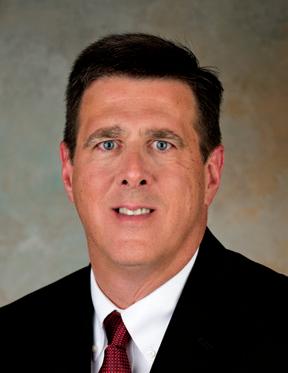
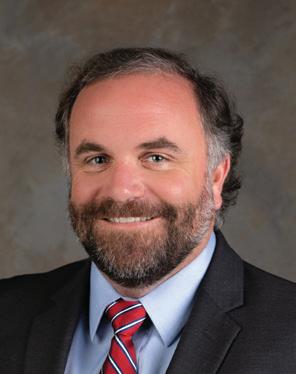
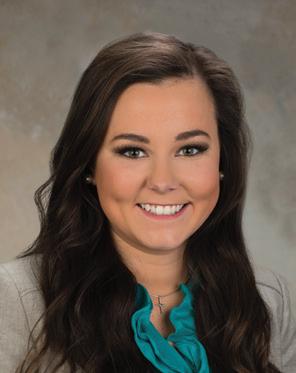

Ronald Schier (Ron) is a 21-year Army veteran and owner of the Auburn-Opelika area’s Another Broken Egg Café.
Ron and his wife, Teresa, have traveled to 40 different countries over the course of his military career, which spanned from 1983 to 2008.
“You had to grow up real quick,” Ron said of his time in the Army. “It was a lot of fun.”
During that time serving, Ron, a Chicago native, was the leader of platoons, companies and a battalion, jumped out of airplanes, attended the War College at Maxwell Air Force Base and served as an admissions officer at the U.S. Military Academy at West Point, among other things. He earned his bachelor’s degree in political science from the University of North Carolina at Pembroke and his Master of Business Administration from Auburn University.
“I really enjoyed that assignment, bringing in the best and brightest in the country, and meeting good families,” Ron said, of his time at West Point.
Ron and Teresa, a former teacher in the Auburn City Schools system, put all three of their daughters through college at Auburn
University. Ron and Teresa were living in Virginia, but frequently traveled down on the weekends for football games while their oldest daughter was attending the university and was in the marching band. He said he and his wife grew fonder of the area during that time and began considering a permanent move.
“We fell in love with Auburn, the whole Auburn-Opelika community, from day one,” he said.
The couple moved to Auburn permanently in 2012, as Ron was doing some work for the U.S. Defense Department and working for Dell computers. However, Ron began to feel he wanted to do something that would leave a greater impact on the community.

“Our prayer ever since we got here was ‘What can we do, how do we bless the community that has blessed us so much?’” he said. “My dad was an entrepreneur and had his own company, so from an early age, from the time I retired, I just always had that desire to make my own mark on something. So, that’s how the whole restaurant thing came about.”
With no experience in the hospitality business, Ron leaned on his military experience to guide him into the next phase of his life.
“In the military, it really helped prepare me for taking accountability and responsibility for my own actions, and making
my own mark,” he said. “I guess that is what put it all together, and through a lot of prayer, we were like, ‘What can we do to give back?’”
The first time Ron ever tasted food from an Another Broken Egg Cafe was in Birmingham while visiting one of his daughters. A lover of breakfast food, Ron was immediately hooked.

“Right away I fell in love with it,” he said. “The corporate service vision when we started was ‘Happy People Sharing Happiness,’ and that spoke to Teresa and me.
“I went to like 15 [different locations] and ordered the same
plate at every one to check for consistency … and it was spot on at every place. I talked to the staff and management at each one and I got the same thing over and over again: It’s like a family-run organization. And I was really excited to be a part of that.”
Ron ultimately decided that a franchise was perfect for what he was setting out to achieve.
“I decided to do the franchise route because I never viewed myself as a creative or artsy guy,” he said. “And I liked the franchise route because the standards are already there, the systems are already in place and by far the product is just

incredible with the restaurant itself.”
The Schiers opened their Another Broken Egg Café in June 2019. According to Ron, it’s been an incredible journey ever since.
“It’s been gangbusters; the restaurant has been well-received,” he said. “It turned out that it was a need in Auburn and Opelika. We strategically placed the restaurant literally 100 yards on the border between the two towns. I love Opelika, it’s a great community with good leadership. We were trying to cross that bridge between the two communities and provide service for both of them.”
Of course, the journey from active duty to civilian — and the transition into owning a business — hasn’t always been the easiest thing to do for Ron.

“I never did hospitality before; this is a first for me,” he said.
as well. However, the thing the Schiers said they consider their biggest success in this venture is the impact they can make on the people — employees and customers — who come into Another Broken Egg.
“Teresa and I have a large love for people,” he said. “All the employees, we consider them as family. Every day I go in and meet a new friend. We really love that part of the business.
“I keep myself grounded in seeing every customer who comes through as a child of God. Whether they bring in with them perhaps baggage from a bad morning or day, I just try to have that understanding and be patient, and loving and help people be their best self, especially with our employees. People come in from every walk of life and background and we try to make it a happy experience for them. We feel a lot more grounded in the hospitality business, and we really know this is where we need to
“But I felt the military prepared me for it because in the Army they throw everything at you. It’s all about standards.”

In particular, the COVID-19 pandemic provided a unique learning opportunity for the business owner.
“I’ve had a lot of growth opportunities,” he said. “For instance, we never did third-party delivery or anything. But COVID changed that and we were forced to deliver … and it’s been hugely successful. I think the military really helps you to be adaptable. That really comes into the business world a lot.”
The Schiers said they are more than happy with the success that has come along with the restaurant since its opening. In fact, the store in the Auburn-Opelika area was successful enough to lead the couple to open another franchise in Pensacola, Florida, with another future location planned there
be.”
In the future, the Schiers hope to help others make the jump into entrepreneurialism and continue to be a staple of love — and good food — in the community they adore so much.
“There is no other place in the world we would rather live than right here,” Ron said. “This is a wonderful community. Teresa and I are now in a position that we want to help other entrepreneurs cross that bridge of the unknown, and this is a great place to do it. We absolutely love it here and I hope when people come in, they sense that. It’s been a real blessing.”
Another Broken Egg Café is located at 2311 Bent Creek Road in Auburn. The restaurant is open seven days a week from 7 a.m. to 2 p.m. For more information, visit www. anotherbrokenegg.com/.

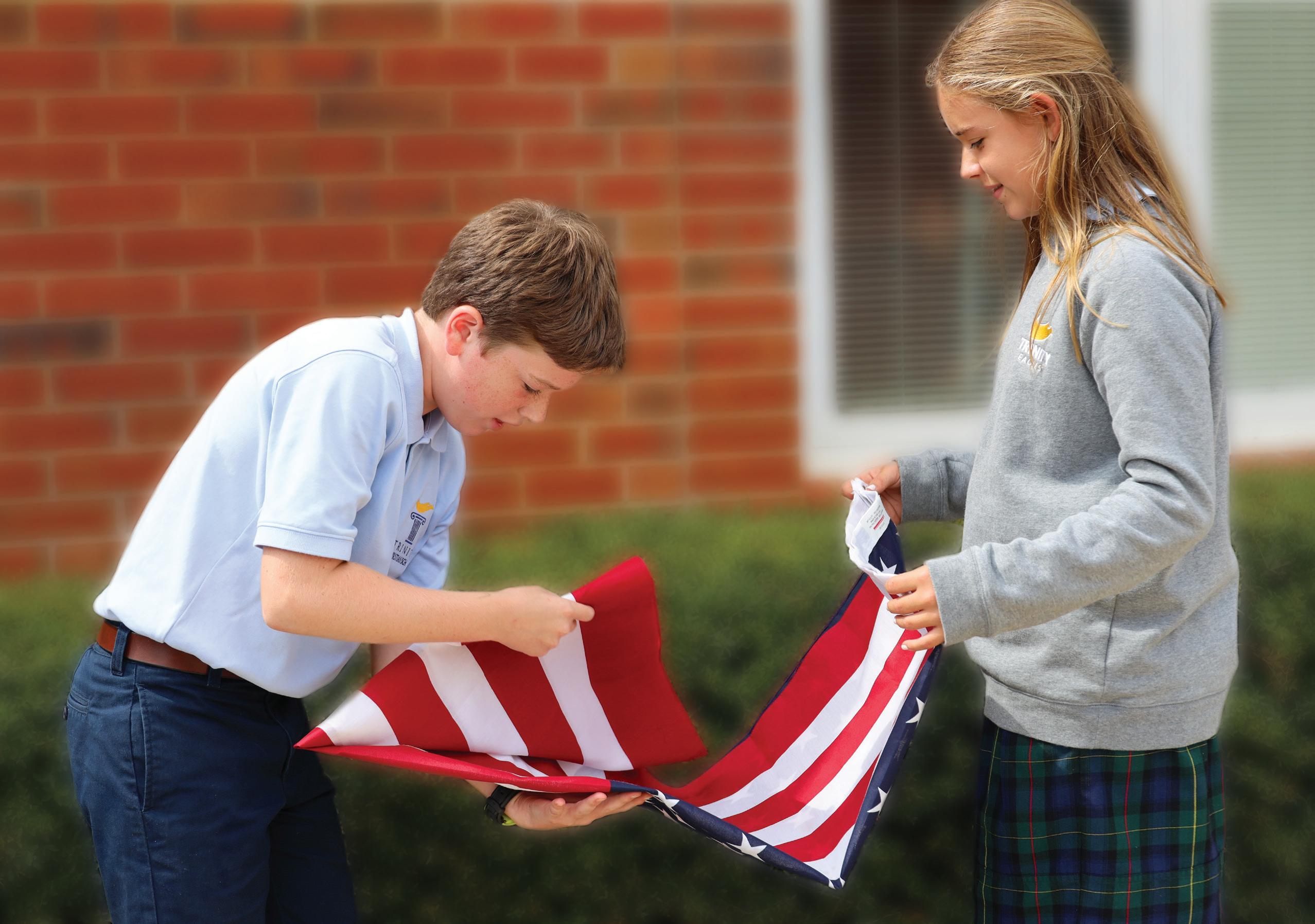

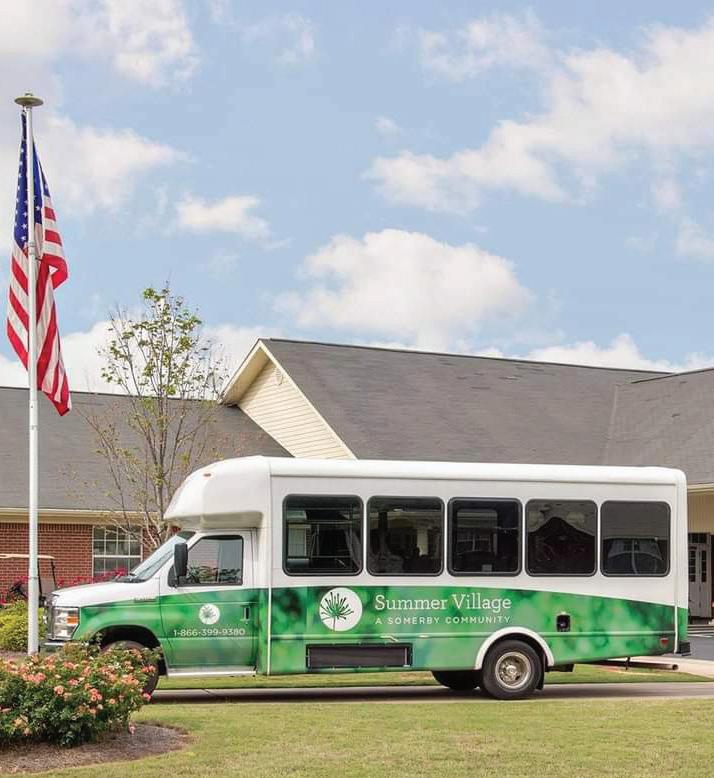


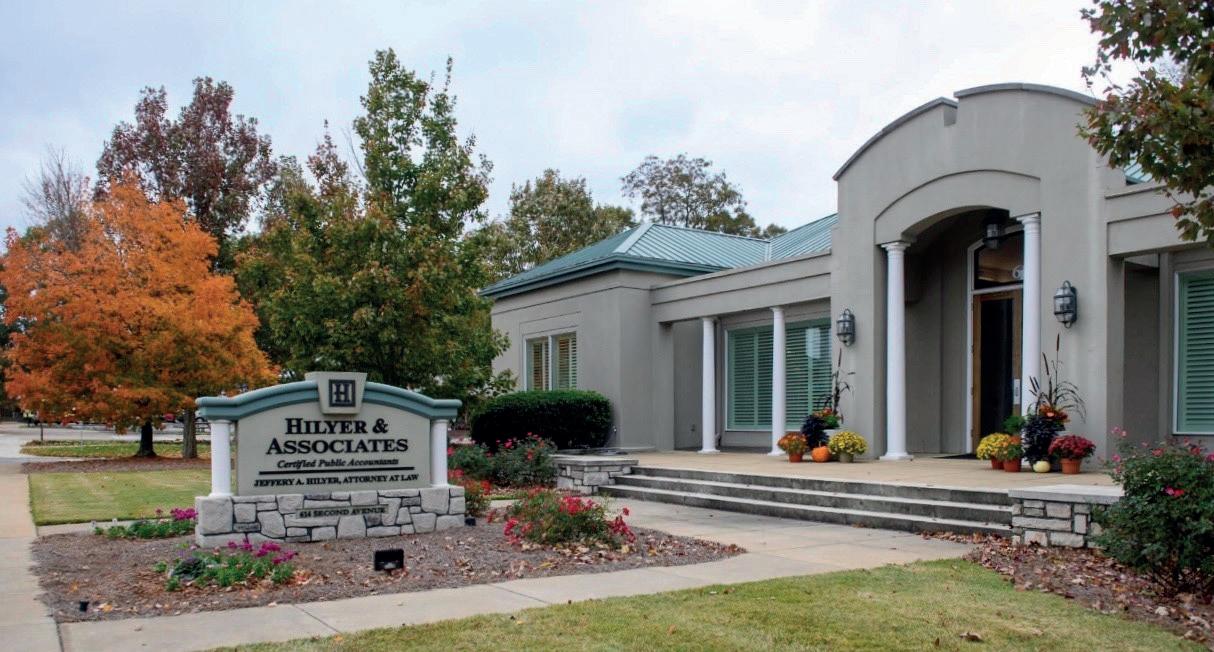



One of Opelika’s native veterans, Carlton Clifton, better known as “Mr. Cliff,” served in the U.S. Army starting in the 1970s. Reflecting on his military service, he explained that his time as a soldier developed him as a person and gave him the chance to travel to places he otherwise never would have seen.
Clifton’s story began shortly after graduating from Opelika High School in 1971. He was first drafted into the military in 1972, and again in 1973, in Montgomery, Alabama. However, he was told to return home both times because he retained a “B” average in school. He had asked his friends to go with him the second time he was drafted but did not do so his third time.

In January 1975, the veteran volunteered to serve on his own. Since his start of military service, Clifton has had many assignments across the world.
He first served as an armored personnel carrier (APC) driver in the 197th Infantry Battalion at Fort Benning, Georgia. Next, the veteran served in Korea at a time when the sectional tensions between North and South Korea peaked. While defending along the demilitarized zone, or the DMZ, which separates North and South Korea, North Korean soldiers killed a few South Korean soldiers for cutting down a tree. But, the South Korean soldiers did this to gain better views across the line and had remained on their side. Nevertheless, he described that as he and other soldiers were patrolling from their fighting
position, a foxhole, North Korean soldiers then came over to the south side.
To make matters worse, this day consisted of rain and belowzero temperatures. Their differing rules of engagement for each side meant that he and his side could only fire if the other side fired first. As the northern soldiers drew closer, the soldiers tried to secure permission to fire first, without prevailing.
“They got very close, so we could only pray that if they fired first, they missed,” Clifton said. “They heard a noise and turned back before they discovered that we were only about 25 meters in front of them.”
The soldiers remained hidden in their foxholes for almost two hours longer than their guard shift required, resulting in cold weather injuries for all, including frostbite.
Clifton’s service didn’t stop with Korea. He went on to additional assignments, the first being in Fort Stewart, Georgia. As the base had just reopened, Clifton said their living facilities and equipment were poor. However, new barracks and equipment eventually replaced what he started with. Before moving on to his next assignment in Montgomery, Clifton also volunteered and was chosen to serve on recruiting duty, first in Newark, New Jersey.
“There, I was awarded the Gold Army Recruiter Ring and inducted into the Army Recruiting Hall of Fame,” Clifton said. “My job as a recruiter was a limited production station commander.”
Clifton spent the next decade of service as station commander and guidance counselor at Montgomery Recruiting Battalion. Then, he moved out of state again to serve as a platoon sergeant and commander in a Bradley infantry company in Germany. While there, in the two companies they sent to Operation Desert Storm, his company was scheduled to alleviate the other when their tour finished.

The veteran rose in the military ranks. As first sergeant, he was responsible for preparing and training his soldiers for war.
“I took my soldiers to Bradley Gunnery firing range, and we set new records on Table 8 and Table 12,” Clifton said. “Once we were trained, packed and ready to go, the war ended.”
Clifton’s military service came full circle when he was reassigned to his home base for his last assignment. Back at Fort Benning, now with almost 20 years of courageous experiences under his belt, he worked as the plans and policy
officer.
“I was responsible for equipping the 29th Regiment with stateof-the-art training equipment to prepare the soldiers for the 21st century,” he said. “I retired from the U.S. Army at Fort Benning, Georgia, in September 1995.”

Clifton’s time serving opened the door to additional areas of both educational and career development. He has earned multiple degrees in his lifetime thus far, consisting of a diploma in radio and television repair from Opelika Technical College, a bachelor’s degree in electronic technology from Pacific College
and a degree in computer science from Southern Union State Community College.
Clifton also opened a business while on active duty after requesting permission in 1981 from his battalion commander. He successfully opened the Zanzabar restaurant and lounge, which he ran for three years. Next, Clifton opened the Pegasus Country Club and managed that for six years. His biggest business endeavor yet was his founding of the Whispering Oaks restaurant in 1990, with locations in Auburn, Opelika, Phenix City and Tuskegee. He operated his restaurant for 25 years before
retiring in 2015.
“While on active duty, I was also able to pursue my favorite hobby, which is to restore antique cars,” he said. “I purchased my first antique car, a 1930 Willys-Knight, in 1982. Since then, I have restored several antique cars, most of which I still own.”
Clifton tirelessly and fearlessly gave back to both his country and to the surrounding Auburn-Opelika communities, which is shown through his countless acts of service and multiple business ventures.



“I am a more rounded person today because of it,” he said. “I was able to teach life-changing techniques to my soldiers that not only helped them, but also helped me.”









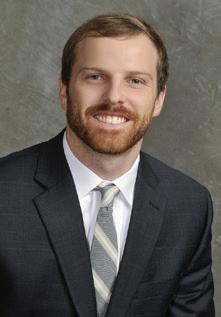







If you fancy a roadtrip from Auburn, visiting Columbus, Mississippi, may be the ticket. The Wings Over Columbus Airshow and STEM Expo was held March 26 and 27, 2022, on the Columbus Air Force Base. The United States Air Force Thunderbirds performed, along with the Wings of Blue Parachute Team and the A-10




Thunderbolt II Demo Team. Columbus is roughly a four-hour drive from Auburn — perfect for a weekend getaway. This past year the performance was livestreamed and will be the next time the show is held, in case four hours in the car isn’t calling your name. See more at www.facebook.com/wocairshow/. The show will not be held in 2023, but will resume in 2024.





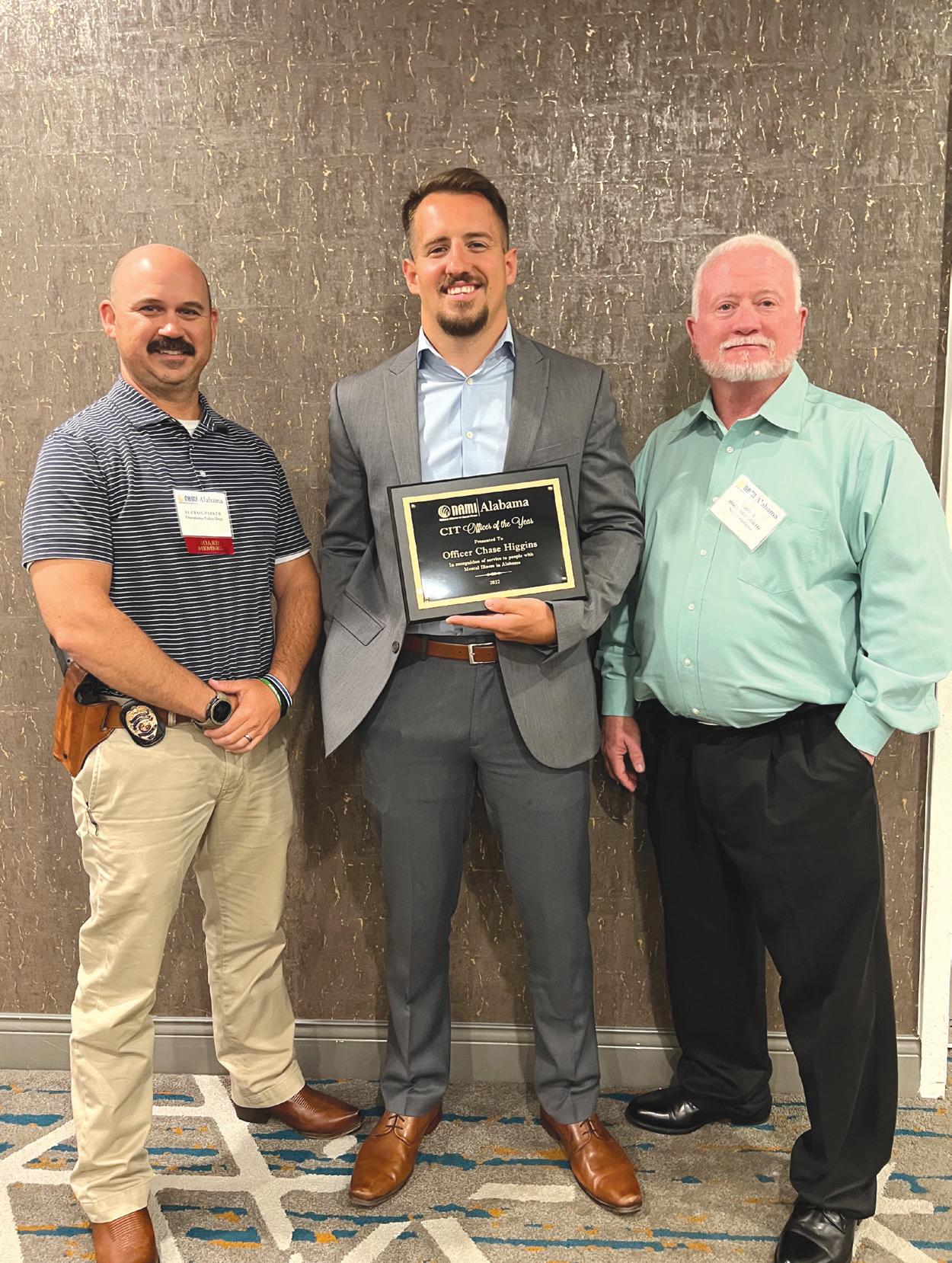
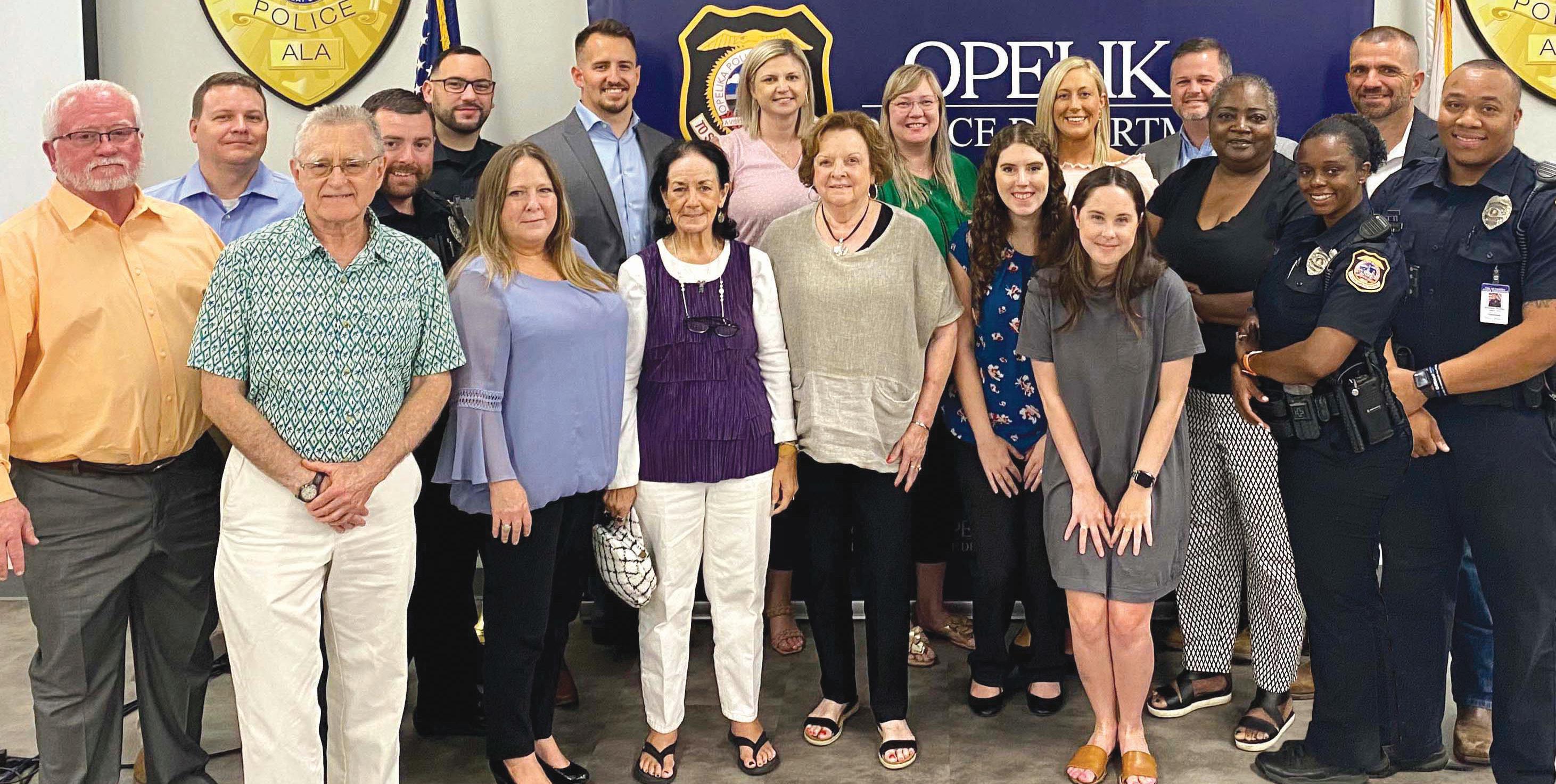
According to National Alliance on Mental Illness (NAMI), approximately 2,700 locations in the United States have a Crisis Intervention Team (CIT).
In May 2022, one such CIT program made it to Lee County.
“We need more complete resources,” said Officer Chase Higgins, explaining the reasoning behind the CIT program. “We need better options and better dispositions for people in crisis than jail. And the main idea is we want to make crisis response safer for everybody involved — law enforcement, people in crisis, mental health providers.”
CIT is designed to train officers on how to handle situations
As law enforcement, however, they are primarily there for issues related to the law. They cannot provide mental health care.
In these cases, it’s common to take the individual to jail. However, this results in the individual rarely receiving the treatment they need and being released from jail with the root problem being unresolved. CIT is about breaking that cycle, Higgins said.
While this program can benefit a variety of populations, CIT does aid in protecting Lee County’s veteran population. According to NAMI, 11% to 20% of veterans experience PTSD every year and suicide rates have increased by 25% since 2020.

Higgins noted while veterans have an increased risk of mental
where an individual may be exhibiting disruptive behavior due to a mental illness or a mental health crisis.
The Opelika Police Department has partnered with East Alabama Mental Health Center, National Alliance on Mental Illness for East Alabama, Tuscaloosa Police Department, Auburn University Sociology Department, Lee County Detention Center and Auburn University Psychological Services to bring a holistic CIT to the county.
Higgins, training officer and CIT coordinator at Opelika Police Department, explained citizens often call the police when an individual is engaging in disorderly or disruptive behavior. Some of these cases involve an individual living with a mental illness.
illness, the other side of the coin is veterans also face stigma around mental health because the experience of being a veteran is associated with a specific type of trauma.
“There can be a stigma that veterans are, for lack of a better term and speaking the language ... ‘messed up in the head,’” he said. “[That] veterans are just PTSD-riddled and are always going to be a conflict for law enforcement, and they’re a risk of violence against law enforcement. In reality, that’s not the case.”
For instance, according to a study by the United States Sentencing Commission, veterans only make up 6% of individuals in the custody of the Federal Bureau of Prisons as of 2019.
Higgins said he hopes the program not only makes crisis
response safer for law enforcement, the community and individuals in crisis, but that it also helps break down the stigmas around mental health.
Part of the breaking down of stigmas is done during the training. Higgins said for an officer to de-escalate a situation, they have to be able to see past the behavior to the person behind the behavior. Crisis situations require high empathy in order to successfully talk a person out of a crisis.
“This is a shared training office; Sgt. James Daniel is here; Officer Justin Winter is here,” Higgins said, motioning to the desk surrounding him. “And one of the things that we constantly preach in this office and tie into all of our training is practice empathy, not sympathy. Because empathy enables us to do our job effectively, make rational decisions, not choose based on emotion but to also exercise emotional quotient to understand here’s what this person is going through.”
Higgins said the other emphasis of the program is getting people to the resources they need. According to 2020 census data, Lee County has nearly 10,000 veterans in the area. As an Army veteran himself, Higgins said Lee County holds a lot of veteran resources.
There is a Veterans Court in Lee County should an arrest occur. Lee County is also one of the only jurisdictions in Alabama that has mental health experts in the jail. During crisis situations, Higgins said the department also tries to keep
in contact with Lee County Alabama Department of Veterans Affairs.

From a law enforcement standpoint, Higgins said veterans have been more of an asset to the community than an issue. However, programs like CIT exist to ensure veterans continue to have the care and resources they need.
“It’s a partnership between three core entities,” Higgins said. “Everybody’s grouped into one of three slots — law enforcement, mental health professionals and advocates. Advocates include family members, and people with that lived experience.

“The fact that we’ve all come together and said, ‘Hey, this is a need, let’s work on ways to find solutions to the problems and fill the gaps and services’ is probably the coolest thing about CIT.”
OPD’s CIT program is one of the newest in Alabama — it officially began six months ago. Long term, Higgins said he hopes to see a CIT presence in other East Alabama police departments including Chambers, Tallapoosa and Russell County.
“I think for people who CIT serves, it’s important that they know that their peers are steering this,” Higgins said. “They’re guiding this program. ... [I] get to tell people we have some very strong-willed people living with mental illness who are guiding this program to include veterans.”

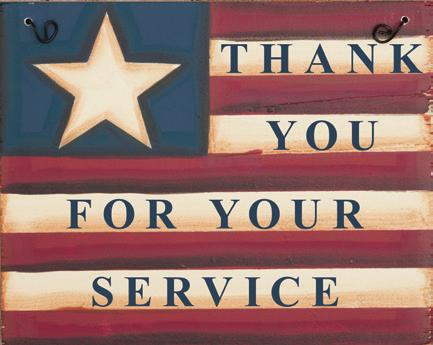



Nick Bain is an Army veteran, a family man and the owner of two JDog Junk Removal & Hauling franchises: one in Columbus, Georgia, and the other in Auburn. His military service has taken him all over the U.S. — from Texas to D.C. to Alaska — before bringing him to nearby Fort Benning.
“I’ve recently passed 20 years with the United States Army,” he said. “I did my first 14 years active duty, and then transitioned into the Reserves, and I’ve been in the Reserves a little over six years now.”
Although Bain’s father had served in the Navy for “a brief time,” following in his footsteps and joining the military was not part of Bain’s initial plan.
Then, the nation was rocked by terrorist attacks on Sept. 11,
2001.
“I joined the military in 2002, which was 11 months after 9/11, and I am from New York,” Bain explained. “… When I was in high school, I definitely [had the plan of] I’m going to college, I’m wanting to be a doctor; 9/11 happened, and I knew that I was joining the military.”
It was a spark shared by many others at the time. The sense of responsibility, of needing to help in some way, drove many men and women to do the only thing they felt they could do: enlist.
“There’s not a whole lot that we can do as people, outside of joining the service and help prevent it from happening again,” he said.
Bain served as a medical laboratory technician in the Army, but again, he said he felt a pull to take a different path once he finished.
“Being in the medical field in the military, I learned that it was something that I really didn’t want to do when I got done,” Bain said. “I’ve always kind of had a long-term, I-would-liketo-own-a-business-one-day kind of mentality, and some of the positions I was in in the military kind of helped develop and mentor, like from an operational standpoint, how to do it successfully.”
So, Bain and his business partner, Ryan Struck, started brainstorming and researching business ideas. That led them to JDog, a company founded by Army veteran Jerry Flanagan that exclusively sells franchises to veterans and family members of veterans.

“When he started the company, it was during the recession, and he just wanted to find something that was recession-proof that he could do because he got laid off from his retail job,” Bain said. “Then he found out it worked, so he wanted to put some more veterans back to work, so he hired veterans, found out that the model was functional and started to franchise with the hopes of getting the veteran unemployment rate below 1%.”
Bain said he and Struck “definitely connected” with the brand because of its veteran ties, military values and goal of helping veterans find work. While it hadn’t been difficult for Bain to find work following his military service, he said he has friends with physical disabilities or PTSD-related issues that struggled rejoining the civilian workforce.
“It’s definitely something I can relate to through some of my close friends,” he said.
During those months of searching for a business opportunity, Bain was working as a contractor on Fort Benning. When he switched gears to start up his first JDog franchise in 2017, it involved a lot of hard, physical labor just to make ends meet. But he said he “wouldn’t trade it” for anything.
That hard work and dedication led to the expansion of service into the Auburn-Opelika area in 2019, and the JDog team is still going strong.
“When we started, my wife was working full time at the hospital to try to help make sure we could pay bills because we didn’t know what was going to happen, and we went from that to owning and operating two locations, so being able to see that blossom the way it did — very rewarding,” Bain recalled. “… When we first opened back in 2017 in Columbus — long days, late nights, phone calls at 7 o’clock on a Sunday evening that get answered — just to see all the energy that’s been invested
come to fruition with a successful business, and then being able to expand that business model to a different service area — it’s still awe-inspiring to me. And the fact that we’re doing better than well enough for me to provide for my family is a huge relief.”
And Bain still acknowledges the support from his family to keep moving forward.
Whether it be his son and daughter picking up slack during slow periods, his wife continuing to support the venture since its humble beginnings or even the care shown by extended family, Bain said having that type of support system goes a long way.
Building strong working relationships with mentors and customers has also been rewarding, Bain said. A few veteran business owners helped “show him the ropes” as he worked to get his franchise off the ground, and from there he has been able to cultivate a strong customer base in both service areas.
Several veterans, in fact, have become repeat customers based on a positive first experience.
“We’ll go to their house and get rid of all their ‘junk’ that they have, [and] they’re calling us three or four months later because they said we did such a wonderful job they had to find something else to get rid of,” Bain mused.

He said his franchises operate from the top down “the military way” — with respect, integrity and trust. And it helps that most of his employees have ties to the military as well.
In all jobs they carry out, the JDog employees aim to respect the customers and their belongings, be


transparent about price and availability and gain the customers’ trust based on the quality of work they do.
Overall, Bain said he counts himself blessed to experience such success in a place he has come to love.
“My favorite thing about the Columbus area has got to be the people,” he said. “The fact that everybody is so welcoming — you don’t meet strangers here. A lot of people just kind of come up and start talking to you about anything and everything. It’s like a huge extended family.


“My wife and I bought a house here about six years ago, and we intend to make this our forever home. … It’s been nothing but blessing after blessing.”

To learn more about Bain’s JDog franchises and services, look up the locations at www. jdogjunkremoval.com/locations/ or visit on Facebook at “JDog Junk Removal & Hauling Auburn Alabama” and “JDog Junk Removal & Hauling Columbus”.




With just short of 21 years of service under his belt, James Henderson of Opelika has dedicated much of his life to serving both his fellow servicemen and his nation.
Henderson joined the United States Naval Forces in 1980 and worked as a Navy hospital corpsman for most of his career. He eventually worked his way into a senior chief hospital corpsman by the end of his enlistemnt and retired in October 2000. He settled back in Opelika, where he grew up.
Henderson said that he followed in his father’s footsteps. With his father having served as a medic in the Army, he decided he would do something similar in the Navy to avoid copying his father too much.
“I followed in my dad’s footsteps to some degree,” Henderson said. “He was a medic in the Army, but I couldn’t be exactly like my dad, so I chose the Navy.”
Among notable tours that occurred while Henderson was enlisted, Operation Desert Storm was one of them. However, he was stationed at the time in New Orleans, where his job was to assign other hospital
corpsmen to different ships involved in the operation.
“I was enlisted during the Desert Storm era, but I didn’t get deployed,” Henderson said. “In my position at the time, I was pulling from different hospitals to get hospital corpsmen to place them in different marine units and hospital ships.”

While stationed in New Orleans, Henderson was in the running for Sailor of the Year within the entire Navy. In fact, he was one of the final four contestants. And with someone like Henderson, he is slow to mention this feat, yet said he is very proud of it.
Henderson said he was also grateful for his time with the Navy because it allowed him the opportunity to see so much of the world. He said he had “been around the world a couple times over” while enlisted.
“The only continent I haven’t been to is Antarctica, and I volunteered to go there several times,” Henderson said. “But there were many places I traveled to that I really loved.”
Despite all of his travels, he said his favorite area to have been stationed was right here in the continental U.S. — San Diego, California. He described the area as crowded, yet simultaneously
peaceful.
Among some of the more exotic places he had been to, Henderson detailed his time in Africa. There, he was able to go on a safari where he said “you could see forever” and that there was complete silence all throughout the area.
Despite venturing into peaceful areas throughout the world, not all of Henderson’s travels were easygoing. One such story took place under Libyan dictator Muammar Gaddafi reign during the 1980s.
As the ship that Henderson was on made its way across the Gulf of Sidra, which Gaddafi claimed to be Libya’s, several missiles were shot their way. The area that Henderson’s ship was crossing was dubbed Gaddafi’s “Line of Death,” and Henderson noted that one of the ships that was nearby sank during the attack.
Henderson also told of his trips to the Persian Gulf in which they were tasked with escorting tankers in and out of the gulf.
While aboard USS Ticonderoga, on which Henderson spent three years, he was able to sail throughout the Mediterranean, the Arctic Circle and all throughout the seas that surround Europe.
However, as Henderson sailed across the world and saw amazing things and faced very serious struggles, he said he grew more grateful for what he had. This came after seeing areas of the world that were poverty-stricken, which he described as much harsher than American poverty levels.
“We think we have poverty in this country, and we do have it, but we don’t know poverty until you’ve seen poverty in Africa or some of the Southeast Asia countries,” Henderson said. “Or just go into South
America, then you’ll see poverty.”
Henderson said that after he retired from the Navy, it took some time to really understand what it meant to be a veteran. While others thanked him, he often found it difficult to find the right response.
“I used to be embarrassed sometimes when people would say, ‘Thank you for your service,’” Henderson said. “It was like I didn’t know what to say. But one day it clicked in my head that sometimes you say, ‘Thank you,’ but now I just say, ‘It was my honor.’”

Henderson said that what he did for this country was voluntary and that it was simply his honor to serve his country. His service allowed him to see what most civilians don’t: that he volunteered to fight for his country and that those who also do so deserve respect.
While he is thankful for how people around him have responded to his service throughout the years, Henderson said he hopes that people will always continue to show that level of respect to all veterans.

He pointed to the response of civilians to Vietnam veterans and said he prayed that this nation never has to deal with that kind of disrespect towards people who have put their lives on the line for others ever again.
Even though Henderson said he went into the military to get away from Opelika at the time, he is grateful to be back and settled here now. He said that his time with the Navy allowed him to grow up and see so much of the world, both the good and the bad in it.
Henderson learned some of life’s greatest lessons while with the Navy. But through it all, he developed a deeper appreciation for his nation, his fellow servicemen and the work it takes to serve this country.






AARP launched the updated Veterans and Military Families Health Benefits Navigator to bring together valuable information and resources to help veterans, military families and their caregivers navigate their health care options. The tool provides Alabama’s veterans with critical information about what is required to qualify for health care benefits from the U.S. Department of Veterans Affairs (VA) or Department of Defense (DoD).
“Veterans and military families faced many difficulties serving our country; accessing health care benefits they earned shouldn’t be as challenging,” said Candi Williams, AARP Alabama state director. “This free, one-stop resource will help make the process less confusing and overwhelming for veterans and military families as they navigate the best path for their health care needs.”
The AARP Veterans and Military Families Health Benefits Navigator has just been expanded to help veterans and their families access VA Specialty Care Programs and Services in the following areas:
· Women Veterans Health Care Program
· Specialty Emotional and Mental Health Services
· Specialty Dental, Oral, Hearing and Vision Services
· Family Caregiver Assistance Program
Nearly 60% of all veterans are eligible for VA health care services, yet less than half of those eligible veterans use VA health benefits, according to a RAND study. And a survey

conducted by the VA Center for Women Veterans found women veterans age 50-plus are the least likely group to use their earned benefits. In addition, of the nearly 400,000 veterans living in Alabama, only 28% have utilized their earned benefits at VA health care, according to the U.S. Census Bureau.
Yet, quality of care delivered by the VA is generally equal to or better than care delivered in the private sector, according to a RAND study. Frustration with the application process and confusion about qualification requirements keep many veterans from receiving their health benefits.
AARP’s Veterans and Military Families Health Benefits Navigator is available at www.AARP.org/VetsHealthNavigator. For more information and other resources for veterans, visit www.aarp.org/veterans.
AARP is the nation’s largest nonprofit, nonpartisan organization dedicated to empowering people 50 and older to choose how they live as they age. With a nationwide presence and nearly 38 million members, AARP strengthens communities and advocates for what matters most to families: health security, financial stability and personal fulfillment. AARP also produces the nation’s largest circulation publications: AARP The Magazine and AARP Bulletin. To learn more, visit www.aarp.org, www.aarp.org/espanol or follow @AARP, @AARPenEspanol and @AARPadvocates, @AliadosAdelante on social media.



Anthony Renza popped a wheelie on his motorcycle, speeding down the street, the Opelika train tracks visible behind him.
I turned as one of his buddies said to me that if I didn’t stop him, he’ll keep going all day.
The Veterans Motorcycle Club in Opelika provides a place for veterans to get together, ride their bikes and share their stories.
Members may take rides around Auburn or Opelika together,
or as far as a trip to the Grand Canyon. They come from all backgrounds and all branches of service, but share their history in the military with one another.
“The club is an all-motorcycle club that encompasses veterans from all branches of the military; some are active, some are retired — we have a variation of both spread throughout the club,” said Craig Scrivener, a member of the club. “It is just a way to encompass the brotherhood [we] had, whether in military

or the love of motorcycle riding.”
Scrivener said that the club gives its members a chance to raise both motorcycle awareness in the community and spread knowledge about veterans’ issues.

The Veterans Motorcycle Club is actually one chapter of several around the country, but it has only been around in Opelika for about a year, he said.
The original club was started in 1982.
“It was five members that were stationed at Fort Bragg, North Carolina, got together; they were all Vietnam vets,” Scrivener said. “It was kind of funny, they go to Waffle House one night, and got together and decided they wanted to start a motorcycle club. The whole idea kind of originated on a napkin.”
The overarching club just celebrated 40 years in October, with everyone congregating in Fort Bragg.
“We usually try to meet up with the other brothers in other chapters as much as possible,” Scrivener said.
The club hosts events throughout the year — awareness events for veterans’ issues, like veterans’ suicide awareness, or anniversary events for the chapter.
“The more bikes that are out there, the more awareness that gets brought to what’s going on,” Scrivener said.
Members all over the country wear their vests out and about. Scrivener actually joined the club after 21 years in the Army, when he saw a Facebook post from a friend wearing one of the motorcycle club’s signature vests.
“I think I was about 9 years old [when] my dad bought me my first dirt bike, and I’ve pretty much been riding off and on between deployments since,” he said. “… I’ve been on and off bikes since I was learning how to tie my shoes.”

Renza, another Army veteran in the club, said he grew up around bikes. His dad had a body shop next to a custom bike build.
“One of the reasons why I joined [the Army] — they were offering the bonuses back then, the real big ones, and I was like, ‘I can buy my Harley now,’” he said.
The club also provides a sense of community for its members.

“The best thing about the club is you have so many people you can reach out to anytime you’re having a rough night; you
have brothers all across the country,” Renza said. “If one doesn’t answer the phone, somebody’s going to answer the phone.”
Knowing you can count on the other members means, however, that there is a process to joining the club, Renza said.
“These aren’t given away, they’re earned,” he said about the vests.
Renza said his bike once broke down in Florida and a brother from Texas was actually the one to come to the rescue, renting a trailer and driving with him to Tennessee.

One of the requirements to join the club is that the member must ride an American-made motorcycle, Scrivener said. Members must also have a veterans status or proof of service.




Members have each other’s backs, Scrivener said. He knows he can count on his brothers in the club.
“I’m originally from Florida; I don’t have any
state
“These guys are my family.”


As Veterans Day approaches, it is important that we take the time to reflect and celebrate those who have courageously served our country. While we may not have the opportunity to individually celebrate every veteran who has served in the military, we can shine a light on those who live right here in Lee County.
Bryan Beets, a local resident of the Auburn-Opelika area, was a student at the University of North Alabama in the mid-1990s before leaving school to join the Marine Corps in 1995, where he would serve for the next 22 years.
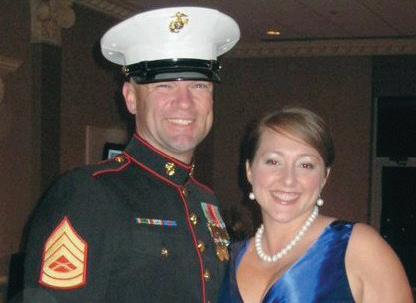
“I was a student at the University of North Alabama and wasn’t really living up to my potential,” Beets said. “A friend at UNA that I looked up to was in the Marine Corps Reserve and I saw how well he balanced being a student with work and his social life, so I thought that may work pretty well for me.”
Although he intended on only joining temporarily before returning to school, he was interested in the ways that the Marine Corps could help to shape him as a person and the skills he could learn.
“I knew the Marine Corps could help me learn to be more disciplined, be physically fit, challenge me and, as a result, gain additional confidence,” Beets said. “I ended up joining the active-duty Marine Corps and not the Reserves and never quite made it back to UNA.”
As Beets recalled his time serving in the U.S. Military, he said that life was pretty good when he joined in the mid-1990s.
“The United States hadn’t been in a major conflict in a number
of years, and although I wouldn’t classify my first four years as relaxing, it wasn’t anything like the Marine Corps after 2003,” Beets said. “Being a young Marine, at least for me, was very similar to being in college. You are living in a dorm-like environment with people close in age with generally similar interests. Combine that with the fact that you all work together and a sense of camaraderie develops quickly among each other.”
Beets said that he ended up deploying three times during his first four years in the military, with mostly the same group of people each time.
“We had great times, laughed, lost friends and colleagues and developed bonds, many that still exist to this day,” Beets said.
However, in 1999, Beets’ life pivoted as he took a job as a Marine Corps recruiter back home in Florence, Alabama.
“I was very fortunate to be successful and became a career recruiter in 2003,” Beets said. “I led recruiting offices in three states, trained recruiters, taught sales and marketing operations to executive staff and helped to write policy throughout the remainder of my career.”
Beets said that he had many fond memories during his time as a recruiter, but that period in his life brought challenge as well.
“I have too many fond memories to list,” he said. “I enjoyed hanging out with my friends in Myrtle Beach on Friday and Saturday nights. I enjoyed sitting with my fellow trainers in Nashville planning our next year’s schedule.”
Beets recalled a memory from his time as a recruiter, where he was called to deploy once again to Panama as a part of a security
detachment in 1997, along with several hundred other marines.
“It was brutally hot and the air conditioning on our compound was always broken,” he said. “We had satellite TV, but only two TVs in the whole place and no computers. We ran up a small mountain every morning and conducted intense physical training every day. We spent two weeks in the middle of the jungle, conducting training and being hot and miserable.”
Despite the brutal conditions and physical demand, Beets said that he had more fun and became closer with that group of Marines than he had in his past deployments.
“We read books, played board games, drank beer and again, developed lasting bonds,” Beets said, “We were miserable together and made it a great time.”
After leaving the military, Beets said that the transition back to civilian life was difficult and provided its own challenges.
“I’ve been retired for six years now, and I believe I’m still transitioning,” Beets said. “I left the insurance industry to get into higher education and now I’m back in school, working on my MBA and who knows what from there.”
Although the transition has been taxing, he said he believes that his experience has been easier than others due to spending 14 of his 22 years in uniform in civilian life.
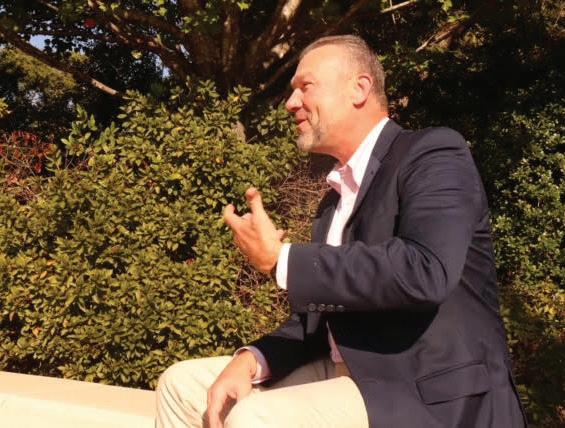


“It’s still challenging because I’m not consistently around other Marines with similar experiences to me, which has been my experience since joining the military at 19 years old,” Beets said.
Beets said that he learned a lot of valuable lessons that he has taken with him into his new life after service.
“I believe that I learned the things I set out to learn in 1995 — discipline, confidence and how to overcome multiple and complex challenges,” Beets said. “I have been really fortunate to serve amongst great Marines, real heroes, and I tried my best to learn from their example.”
However, Beets said that some of the greatest lessons that he has learned came from that decision he made at 19 years old. He said he has learned that being a part of the Marine Corps, or any branch, really, is temporary. What is most important is being prepared for the next moment, whatever that may be.












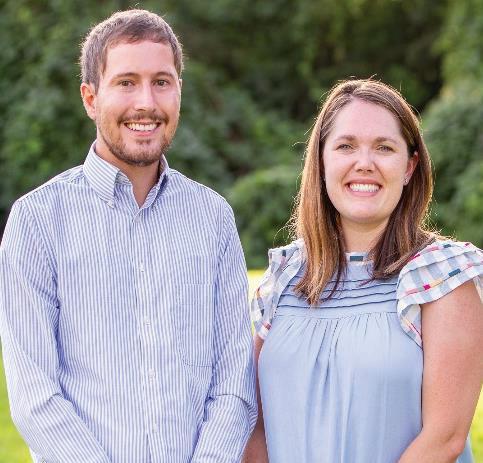


Photos are from the 2021 Opelika Veterans Day Event. The event offered a breakfast to veterans and their families at the Opelika Public Library. Join the library again this Veterans Day, Nov. 11, for the 2022 program at 10 a.m. at the Opelika Public Library. Veterans will receive free breakfast at 9 a.m.



 Photos By Robert Noles
Photos By Robert Noles



Auburn will host its annual veterans event on Nov. 11— co-hosted by the city of Auburn and the Auburn


indoors at 141 N. Ross St.
Orrin “Boody” Brown IV is Opelika’s centenarian veteran. Brown turned 102 on April 4 and celebrated with a party, inviting family and friends to his place of residence to join in on the occasion.
Born and raised in Opelika, Brown attended the Alabama Polytechnic Institute (what is now Auburn University), where he pursued a degree in aeronautical administration.
Following his graduation in summer 1941, Brown applied and was accepted into the U.S. Army’s Aviation Cadet Program. With his bombardment group, “The Carpetbaggers,” Brown served in France and England in support of the Allied forces of World War II. Brown has been recognized for his service multiple times, including receiving a congressional medal from the government of Norway in 2019.
Photos to the right are from Brown’s birthday party, Brown when he was honored at an Auburn University football game, at the Norwegian ceremony in 2019 and during his military service.
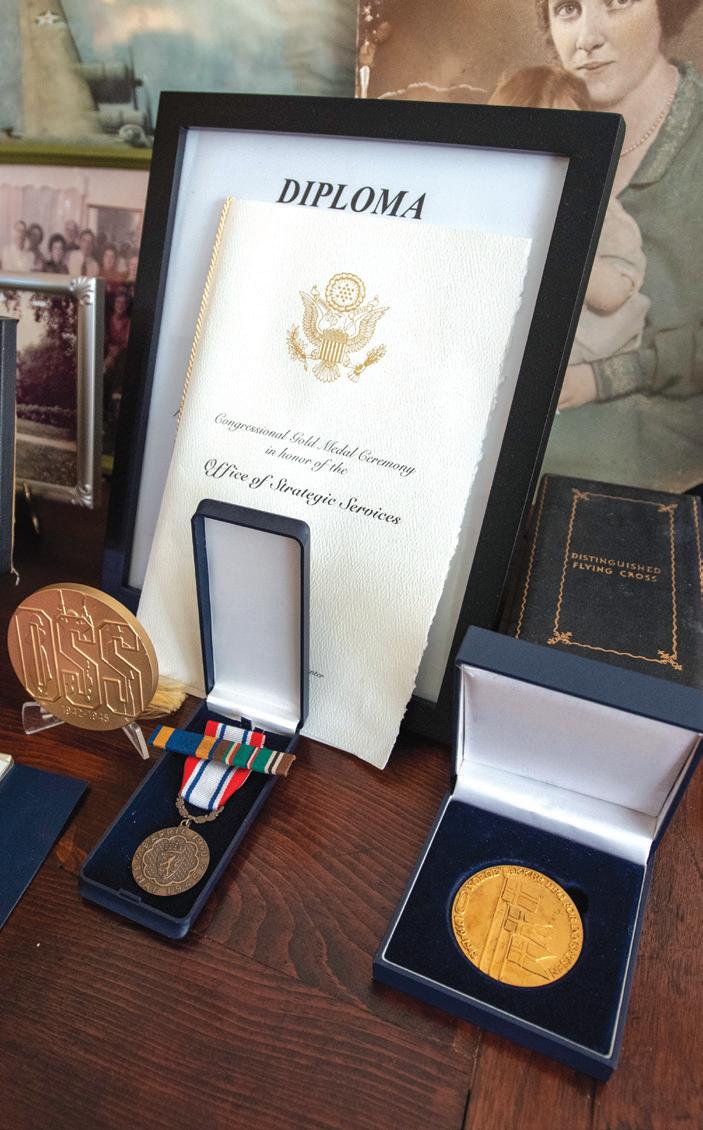
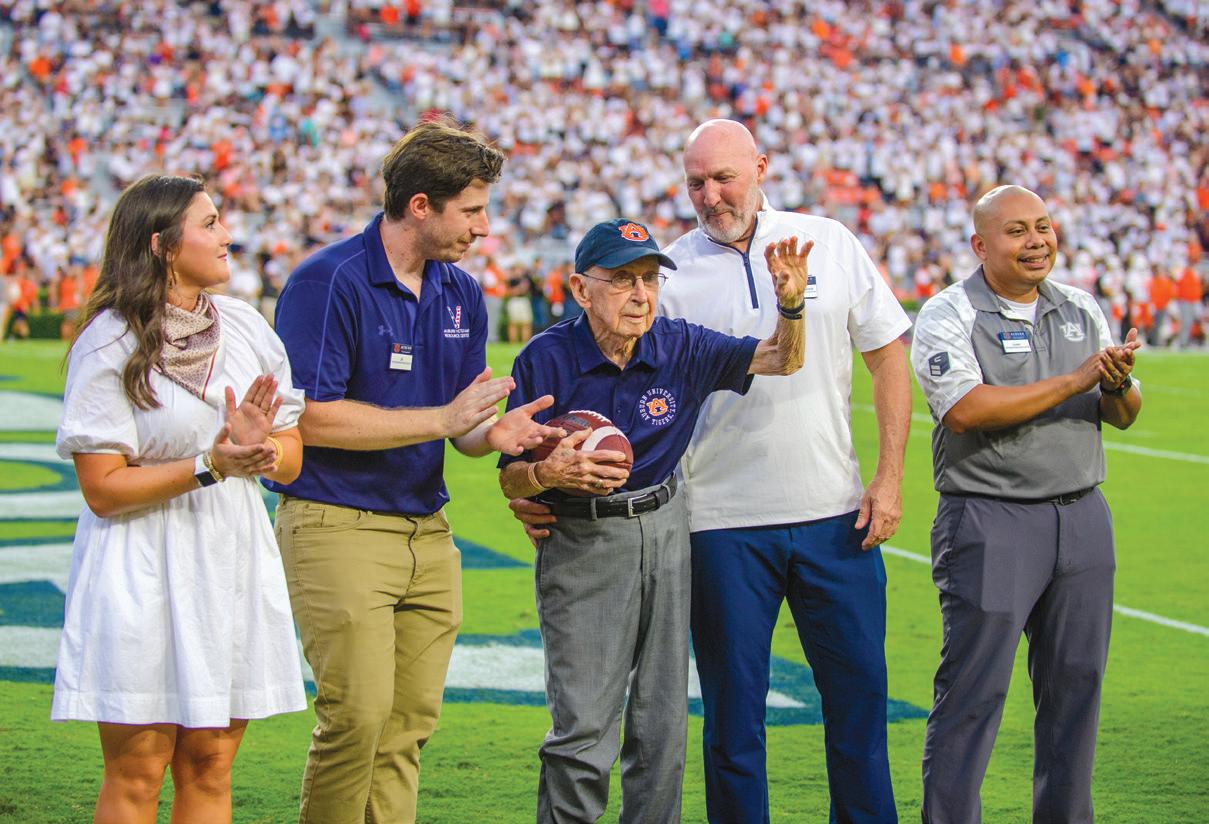
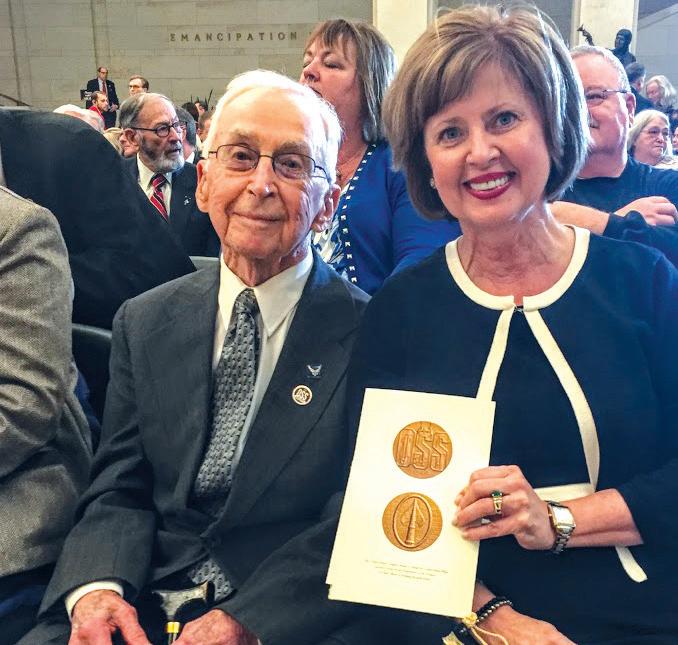
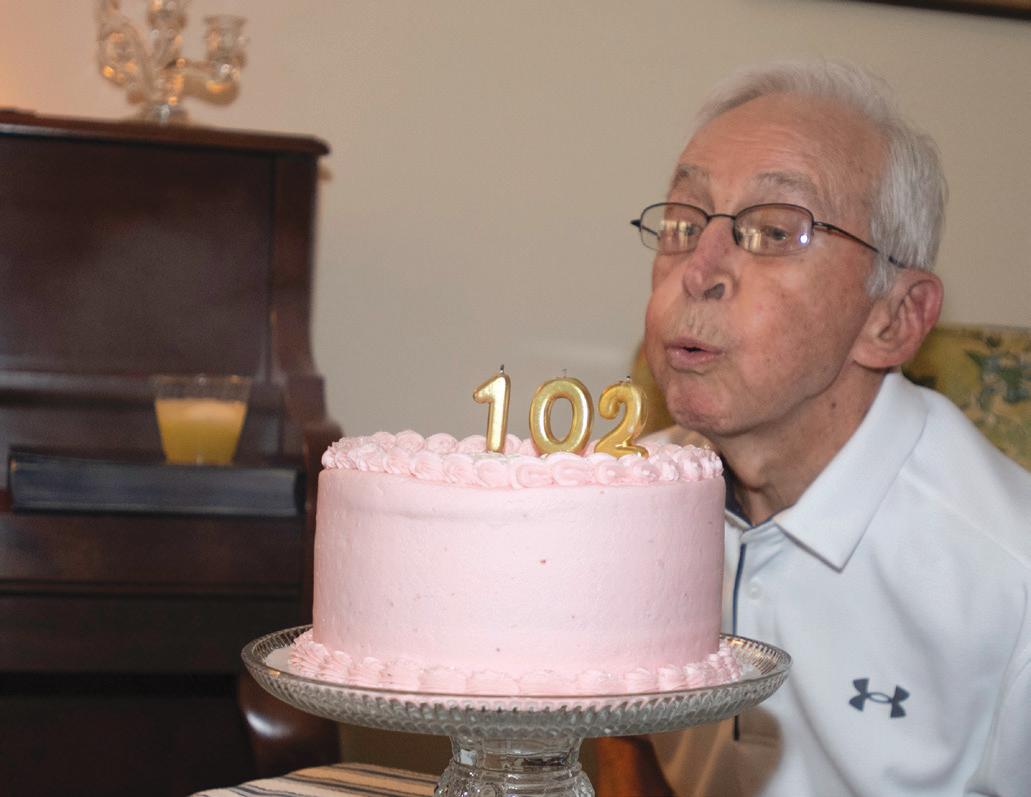
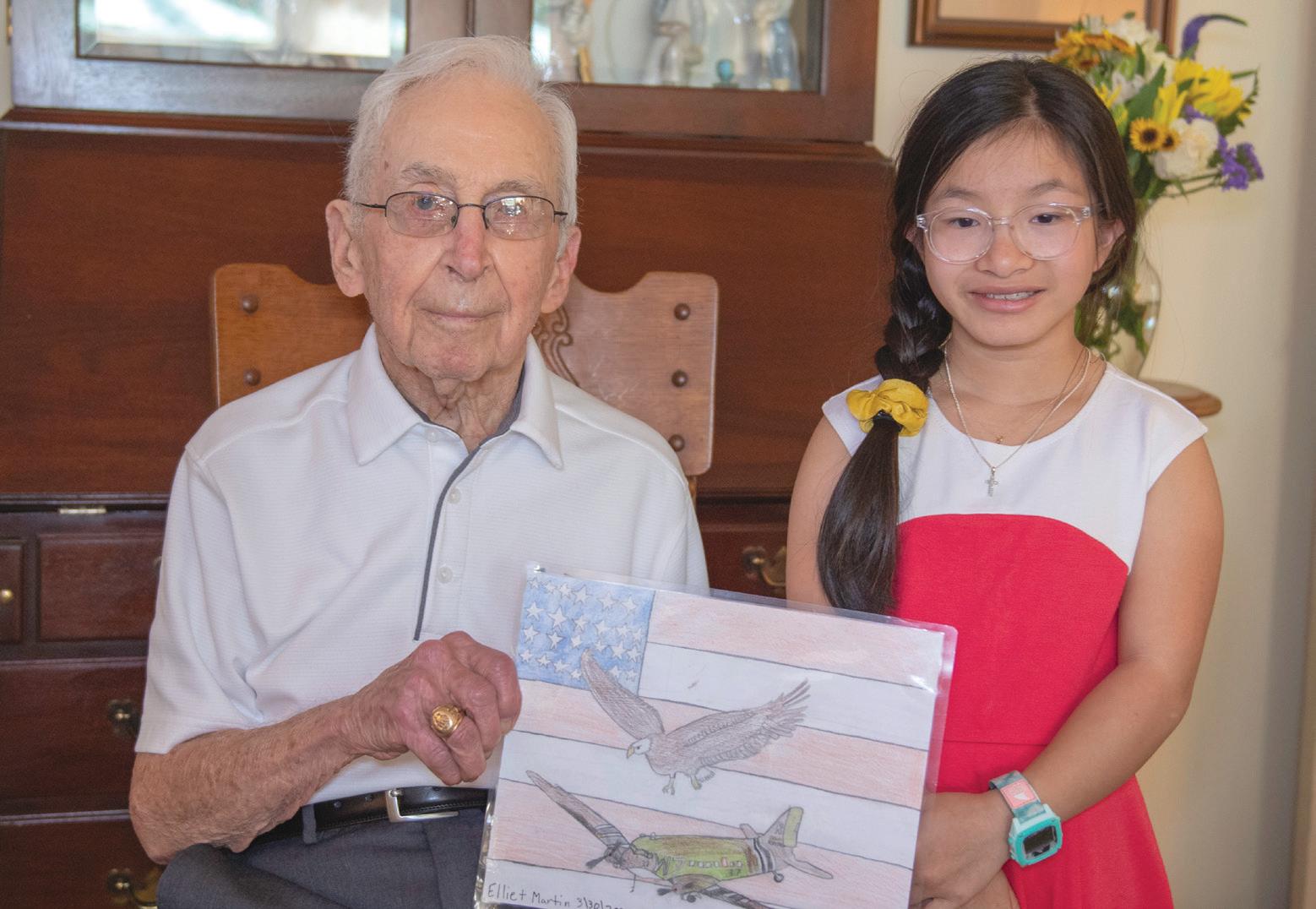

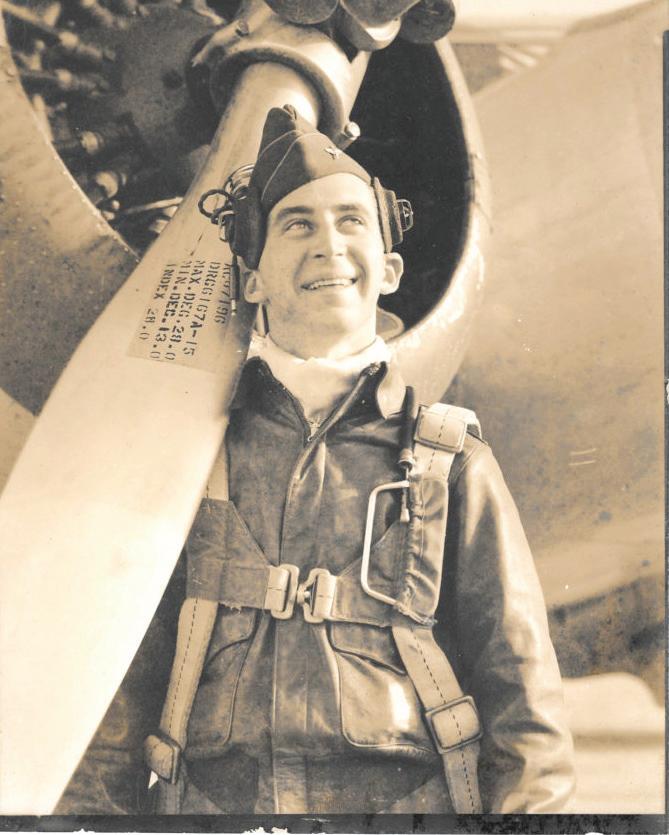





 Photos By John Hillsman
Photos By John Hillsman
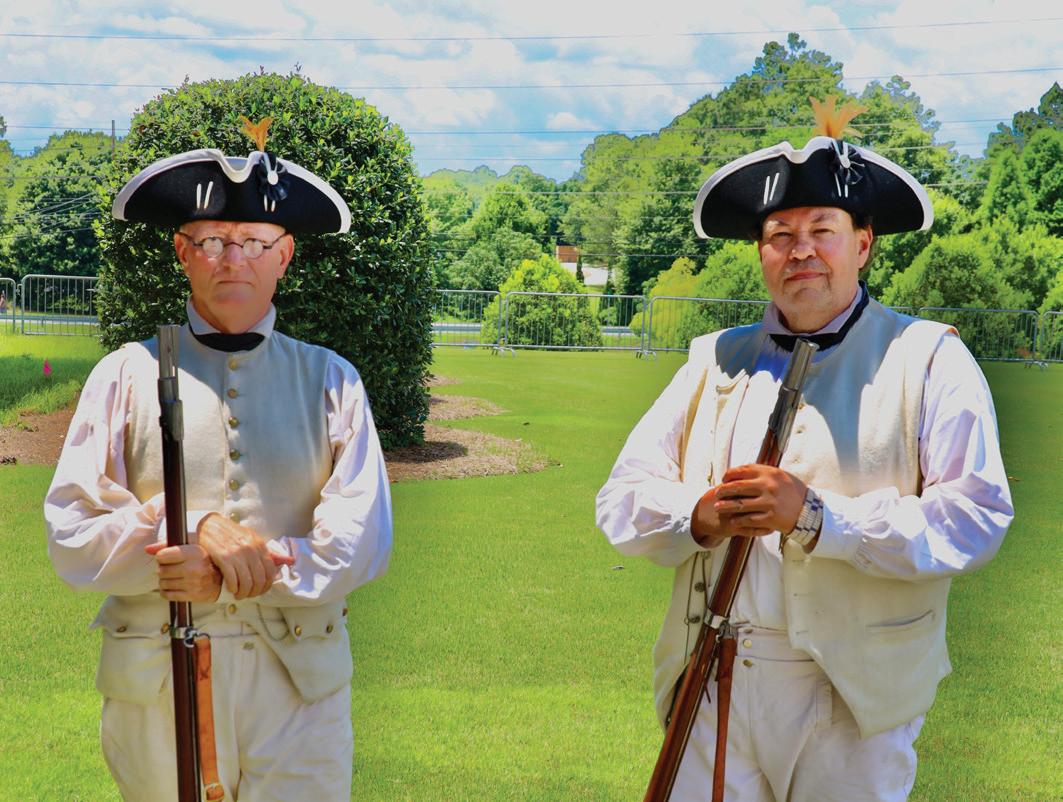
Ashort dash away in Columbus, Georgia, is the National Infantry Museum. The museum has been open since 2009 and includes a number of indoor and outdoor exhibits. This year, the museum held its annual Freedom Fest Fourth of July Celebration — the first one since COVID-19. The Maneuver Center of
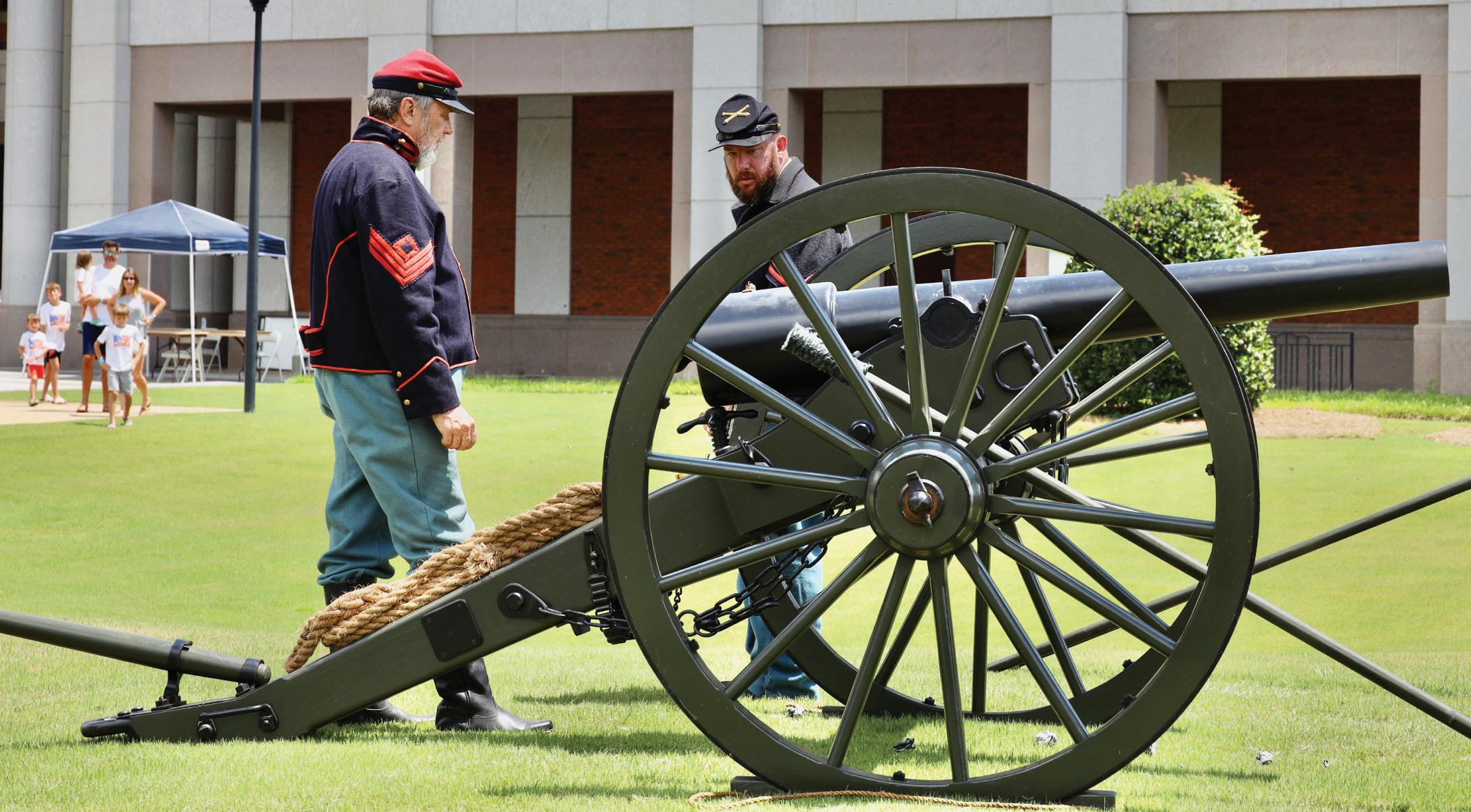
Excellence Band performed, and there were fireworks, a Silver Wings Parachute Jump and more. The museum offers other draws throughout the year, including its combat simulator — a VR experience, allowing civilians to step into a “mission.” For more information, visit: www. nationalinfantrymuseum.org.
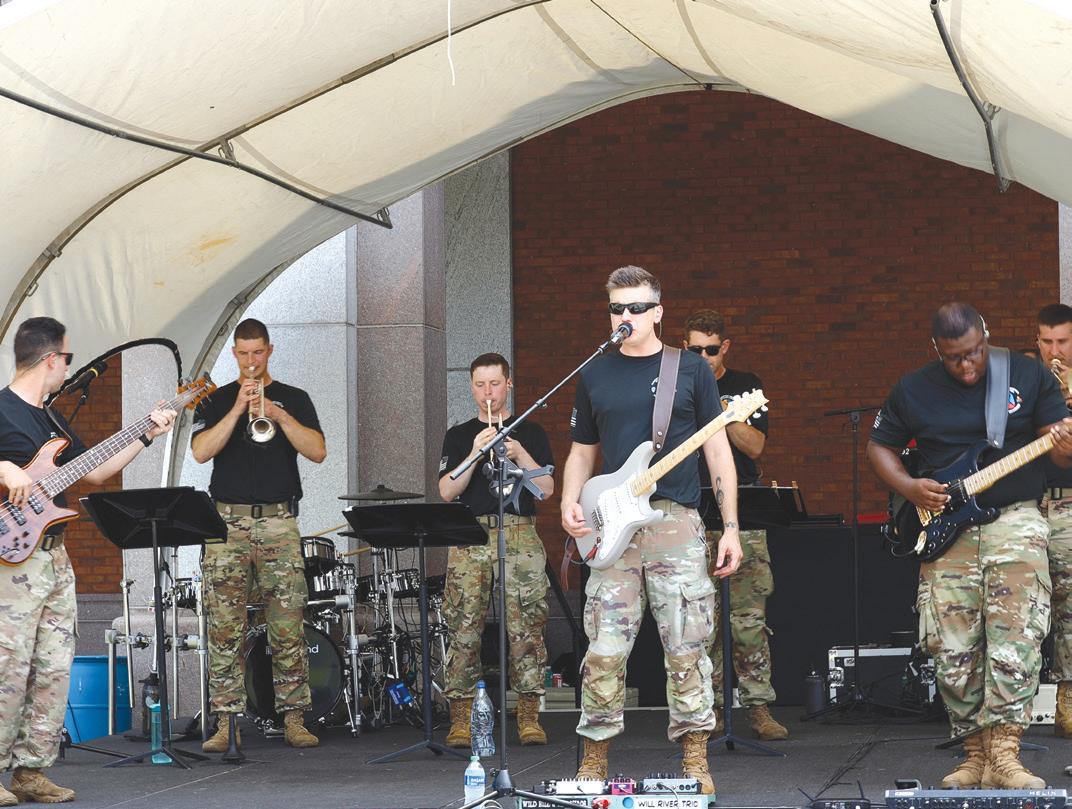
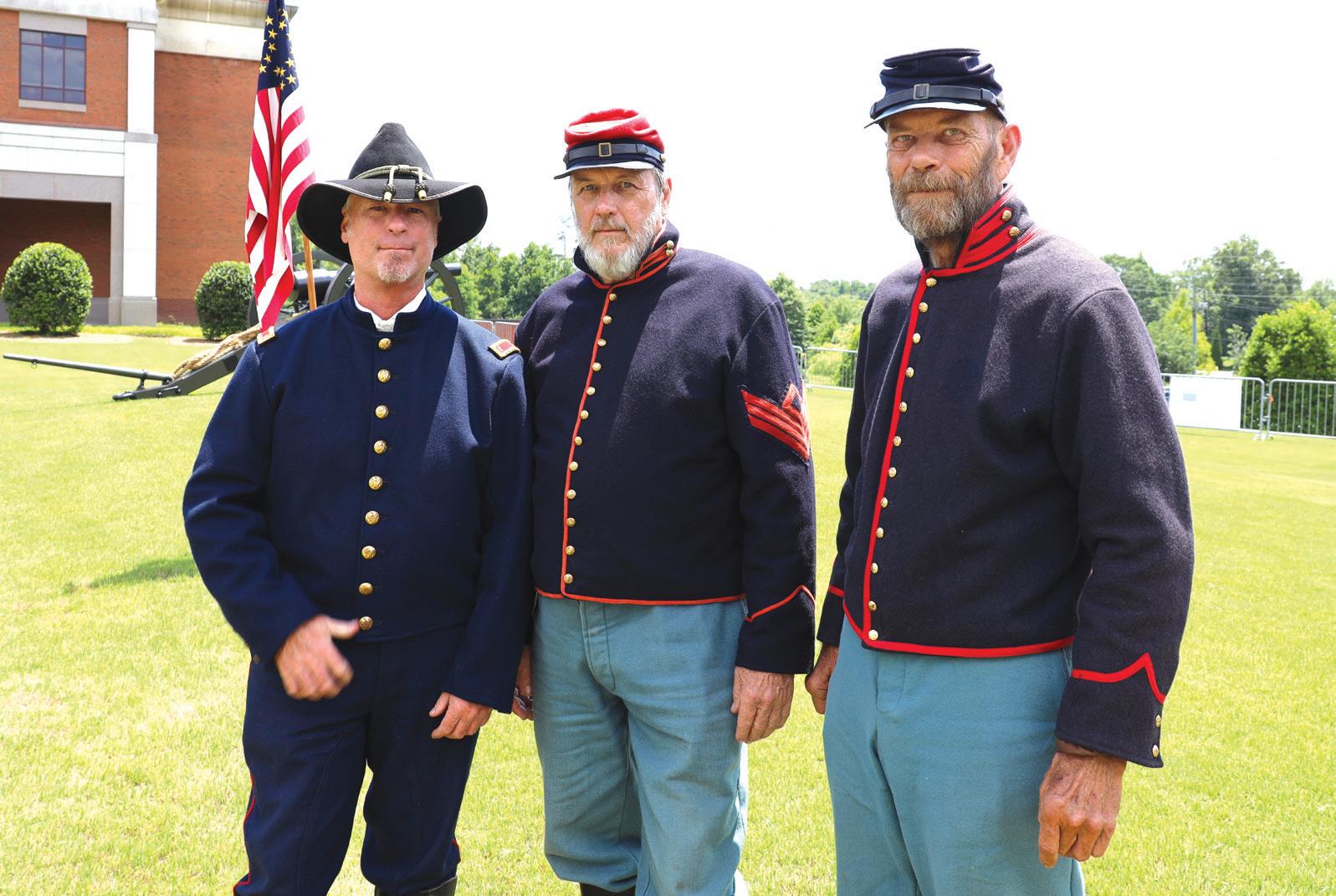

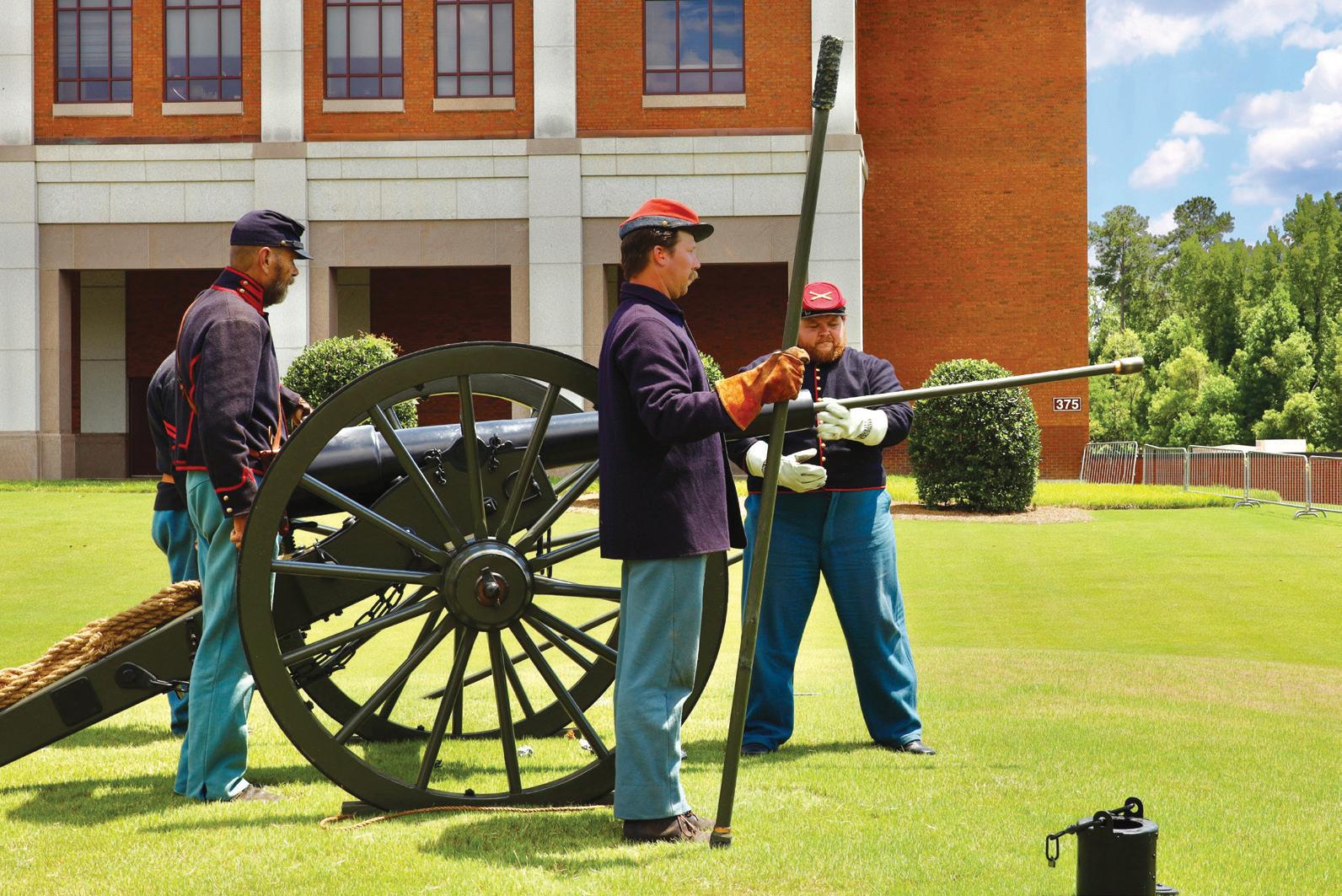

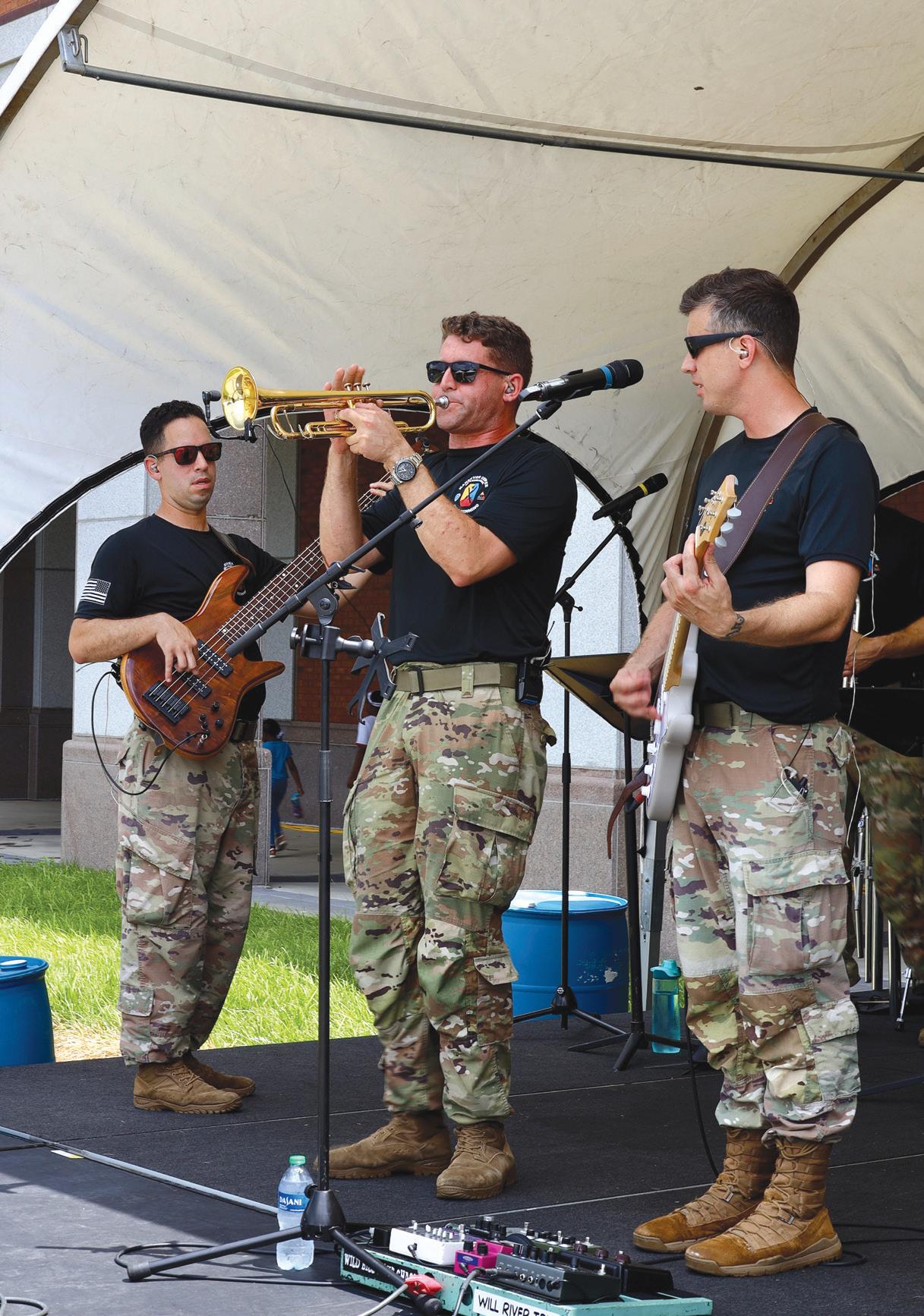
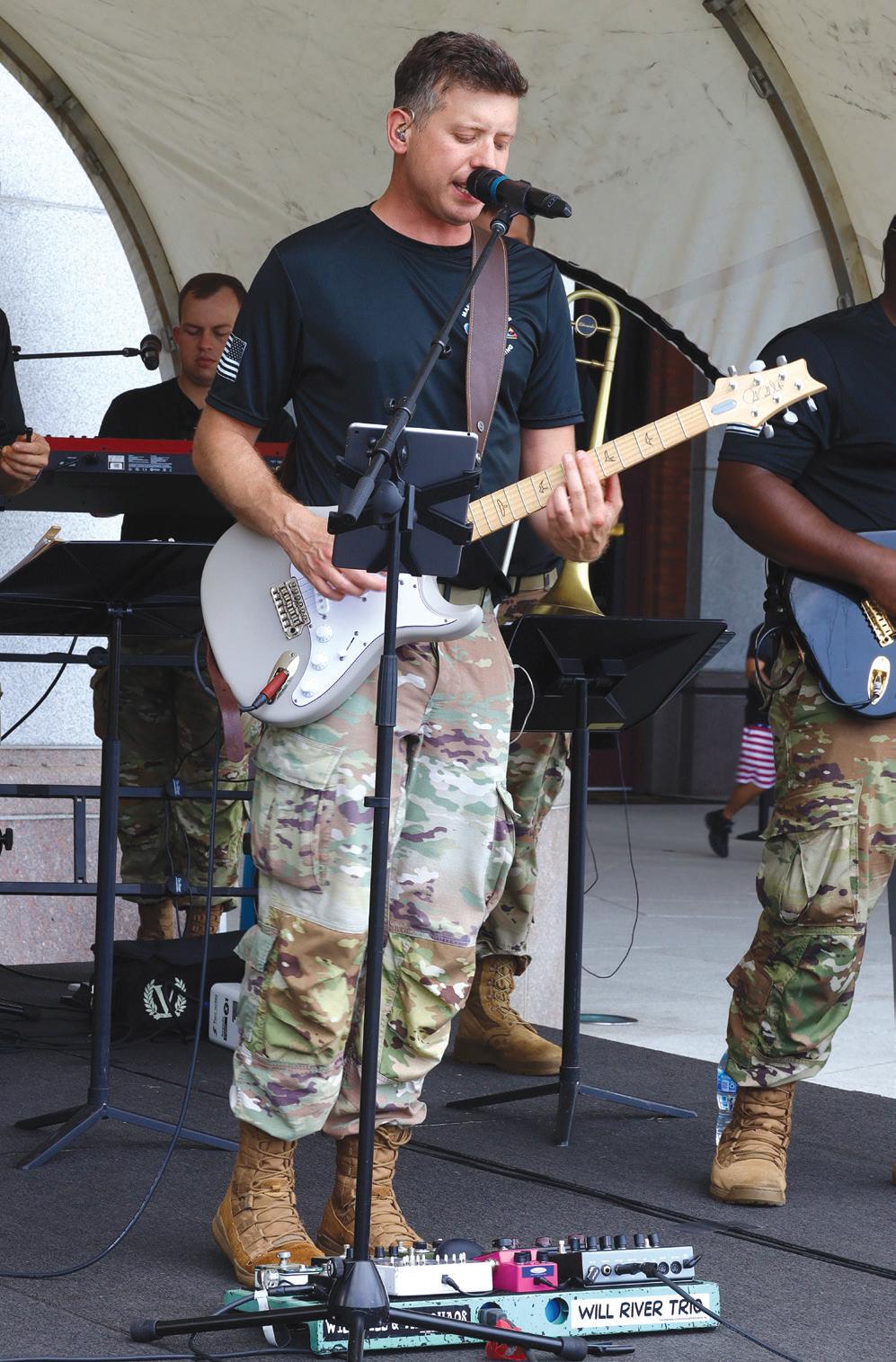


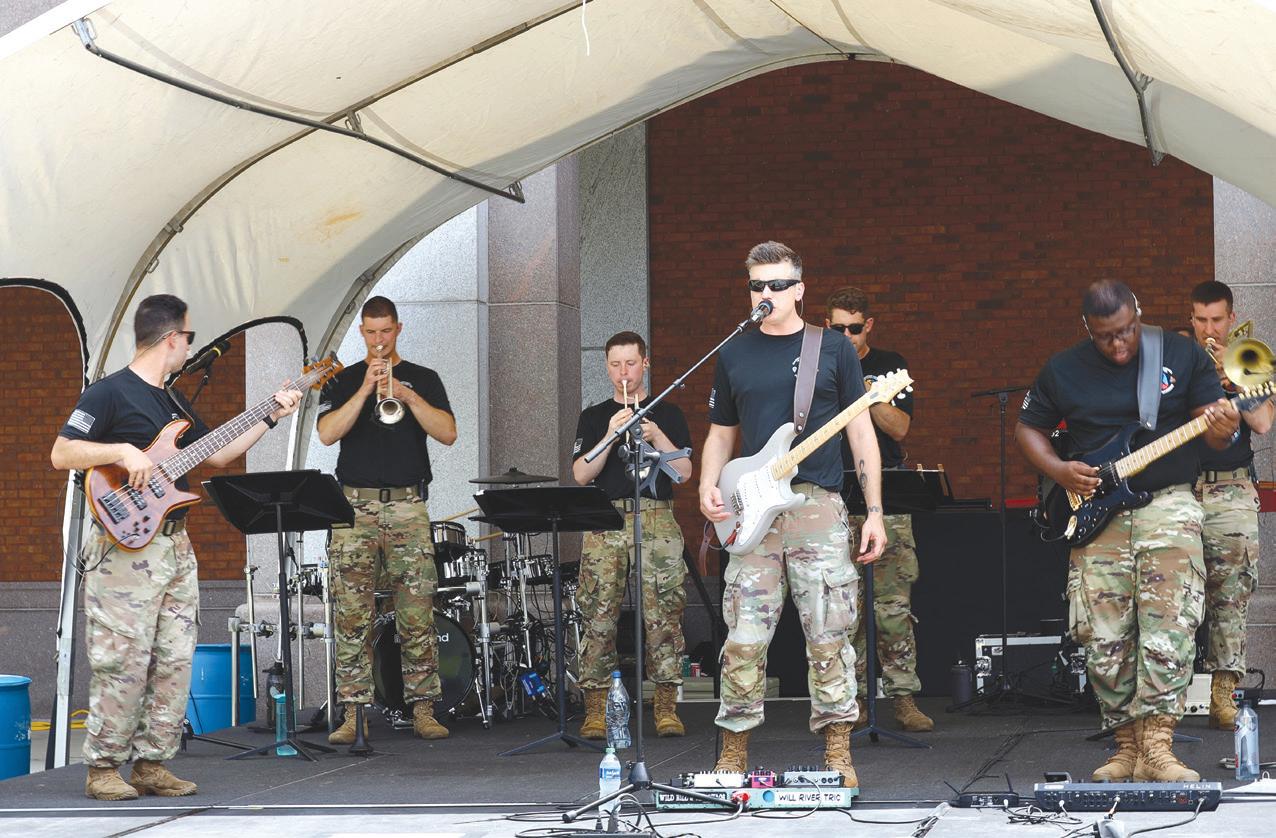



Madison's Place Cafe is a soul food restaurant that believes in feeding the soul. It is the mission of Madison's Place Cafe that you leave with the expectation of coming back for more.




The Alabama G.I. Dependent Scholarship Program administered by the Alabama Department of Veterans Affairs (ADVA) is expanding with the passage of Senate Bill 119.
The bill, introduced by Sen. Will Barfoot, R-Pike Road, expands the program to include certain private institutions of higher learning and adds service in the Space Force as qualifying military service.
Eligible students attending one of the newly added private institutions may receive up to the Department of Defense Tuition Assistance Cap (currently $250 per credit hour) and up to $1,000 for the combination of textbooks and instructional fees each semester after other grants and scholarships have been utilized.
“We want to thank the Alabama Legislature for working with us to pass this version of the bill that offers this great program to more of Alabama’s veterans,” said ADVA Commissioner
Kent Davis. “The Alabama G.I. Dependent Scholarship Program is first class, and we look forward to working with eligible students and private institutions around the state in assisting any way we can.”
The bill has been signed by Gov. Kay Ivey and went into effect June 1, 2022.
The Alabama G.I. Dependent Scholarship Program previously applied to only public higher education institutions in Alabama and comprehensive transition and postsecondary programs (CTPs) for students with intellectual disabilities.
There were 16,425 students enrolled in the program during Fiscal Year 2021. The ADVA encourages students seeking to use the scholarship to apply as soon as possible. Anyone needing assistance may visit one of the 61 Veterans Service Offices around the state.

Learn more about the Alabama G.I. Dependent Scholarship Program on the ADVA website.

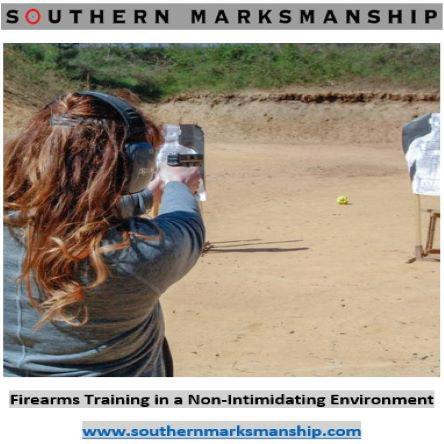
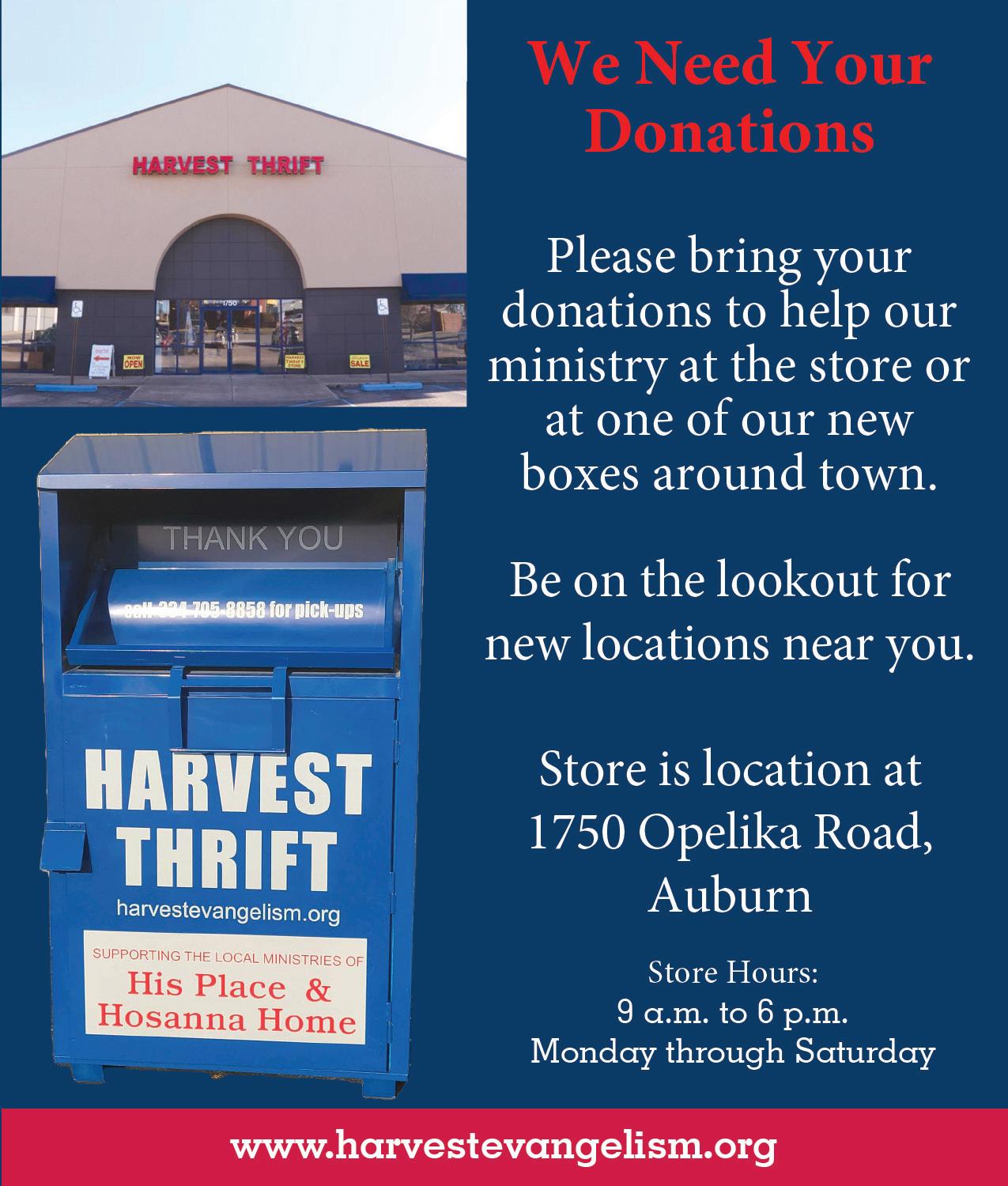



Could wedding planning be any more different from the Navy? Morgan Huggins has experienced both.
She owns and operates Charmly + Co Wedding Planning.
Huggins moved to Auburn eight or nine years ago to use her GI Bill alongside her then-boyfriend. Both are Navy veterans.
“When I was in the Navy, I was a mass communications specialist, so I focused on journalism, photography, public relations,” she said.
Huggins served for four and a half years, she said, on the
USS Iwo Jima.
While in school at Auburn University, Huggins dipped her feet into the event planning world. She traveled full time for Ford Motor Company and Volvo talking about cars as an experiential event planner.

She worked high-end events like the Volvo Car Open and the Rolex Three-Day, as well as more casual things like farm shows with Ford and yoga festivals.

The birth of her son, however, changed her outlook on working, Huggins said.
“I’ve been a stay-outside mom for almost four years now,” she said. “I was never a stay-at-home mom, I was stay-
outside. And I got bored quick, so I was trying to figure out what to do. I started helping with some community events in the area, just because I had the skill set. For years, I’ve always been friends’ go-to when they’re required to have a professional planner for weddings because, although I did not do weddings, I was a professional planner.”
As the amount of weddings increased, Huggins said she considered that she could turn that into more of a full-time gig.
“I absolutely never intended to work in the wedding industry,” she said. “But, it provided me a space that I could work and not travel full-time.”
As the business grew, its goals and aspirations did as well. Charmly + Co caters to the LGBTQ+ community, Huggins said.
“We’ve made it a point to emphasize that we’re a little bit different,” she said. “It makes it clear in all our paperwork, too, that if that bothers anybody that we’ll hook them up with the right person, but it was perceived way better than I expected, so I now have a team of four other planners who work for me. We’ll celebrate a year in November.
“We are a transparent business that does not discriminate against any of our clients. That’s something that’s really important for us to emphasize, that all love is welcome through our doors and we truly do want to be friends with our clients, so it’s important that they’re the right fit.”
As part of Charmly + Co, Huggins has also started a wedding professionals networking group alongside Love + Legacy Studios in Auburn and Columbus.
“I’m aiming for our community to just be like the coffee community in Auburn,” she said. “They’re all so
supportive.”
Often wedding planners and services are very competitive, Huggins said, when that is unnecessary.
“We’ll all do a better job at what we’re doing if we share and lift each other up,” she said.
Huggins said when she started Charmly + Co that she didn’t want to offer “one-day” wedding services.
“Because, in order to really do that job right, something that I already know because I had a planning background [is] that you have to invest time, days, leading up to it to really make that happen,” she said.
So, instead, the business offered week-out packages that evolved to two-month-out packages. That is now the shortest time frame that a client can work with Charmly + Co.
Some of her Navy habits have transferred to being a business owner.

“To most people I’m a very fun, free spirit, but also when it comes to work, things are very structured, things are very delegated,” Huggins said. “I don’t leave room for error or question, I guess. In the Navy, we sailor-proof things.”
Time management is another Navy skill that Huggins brought with her to her business.

She is able to accommodate brides and grooms with both higher budgets and smaller budgets.
If a couple can’t afford the two-month-out package, Huggins offers a wedding chat, contract-free opportunity for brides or grooms to get advice and information.
Huggins offers services in the Auburn and Birmingham areas but hopes, as the business grows, that she will be able to service other areas as well, she said.
“I take it very seriously what I’m doing for each of these
couples, whether they’re spending $10,000 on their wedding day or $100,000 on their wedding day. It means just as much to both of those couples.”
Huggins said her favorite part of the process is getting to share the wedding day with the couple.
She said her favorite moment is after the wedding party has walked down the aisle, the flower girl and ring bearer have made their way to the front and it is the bride’s last few moments with whoever is walking her down the aisle.

“Every time, it just gives me chills because I get to be that person standing right there watching that moment between her and, in most cases, her father,” Huggins said. “They tear up a little, and it’s 30 seconds at most that we’re alone because everybody else has been there the whole time, but there’s this warm feeling, and then getting to open the doors and watch everybody stand and see her — that makes it all worth it. It’s really, really special to get to be behind the scenes and witness the real love that people have.”

“We’ll all do a better job at what we’re doing if we share and lift each other up,”



Alsobrook Law Group, 84
Arbor Springs, 30
Axe Marks The Spot, 75
AuburnBank, 20

Auburn Opelika Dental, 63
Ballard Pest Management, 75
Beauregard Drugs, 29
Budget Blinds, 31
Build-A-Bride, 35

Church of Christ at Cunningham Dr., 81 City of Opelika, 11
Cleaning Solutions Auburn, 68
Clear Water Solutions, 29 Closet’s By Design, 3
Da’Gallery, 2
Day’s Hair Salon, 30
Edward Jones, 30
Foodie’s Gourmet Cafe and Bodega, 51 Global K9, 48
Glynn Smith Chevrolet-Buick-GMC, 7
Goree’s Furniture Express, 80
Harvest Thrift, 75
Hibachi On Wheels, 51
Hilyer & Associates, CPAs, 25
Huddle House, 30
Jay & Susie Gouge Performing Arts, 14, 45, 62
Jeffcoat Trant Funeral Home, 68 Key Media LLC, 82
LiveStyle 360, 49
Madison’s Place Cafe, 73
Majestic Creations, 61 Market St. Paint Shop, 63 Meals Chiropractic, 24
Oline Price, Lee Co. Revenue Commissioner, 57
Opelika Theatre Company, 25, 61
Opelika Sportsplex, 83
Orthopedic Clinic, 29
O Town, 73
Perception Therapy, 6
Phil Henderson Insurance Agency, 81
Ponko Chicken, 72
Price Small Engine, 39
Prime Home Health, 30
Rock & Roll Pinball, 31
S & L Auto Glass, 24
Sheriff Jay Jones, 40
Southern Marksmanship, 75 Stitch Therapy, 68
Summer Village, 25
Sweet Gee’s Restaurant and Catering, 72
Talecris Plasma, 73
Taylor Made Design, 6
The Gallery, 35
Trinity Christian School, 24
Trinity Presbyterian, 72
Ursula’s Catering, 83
Wadkin’s Metal, 61
Whitt’s Auto, 61
WoodmenLife, 63
PhilHendersonInsurancehasbeenoffering individualsthroughoutOpelika,AL, Lanett,AL, andLaGrange,GA, withhomeandautoinsuranceforover25years. Withpaymentsstartingaslowas$29amonth, wewillhelpyoureceiveallofthecoverageneeded toprotectyouandyourfamily.Regardlessofa goodorbaddrivingrecord, ourinsuranceagents willhelpyouchooseanaffordableinsuranceplan thatwillmeetyoureveryneed.



